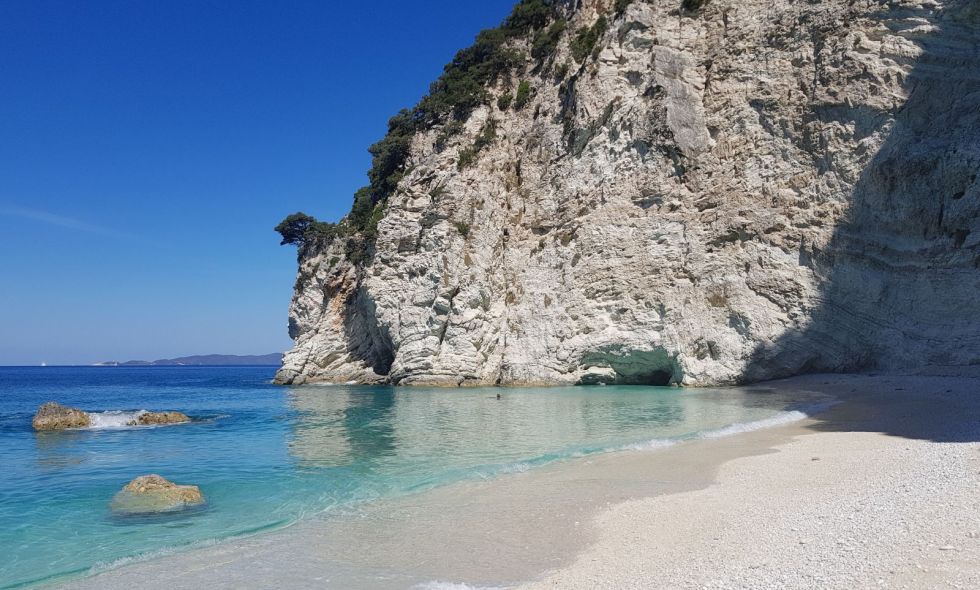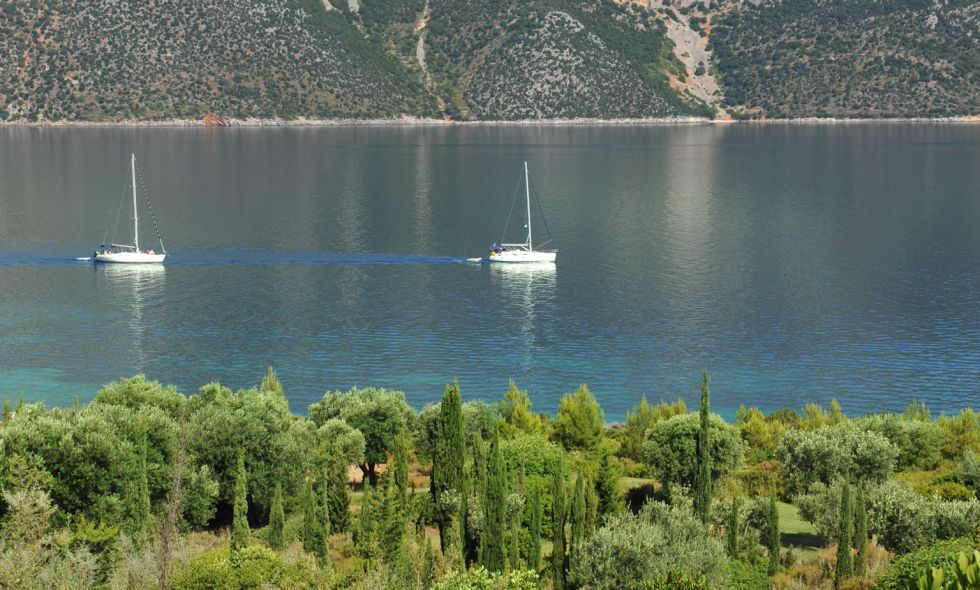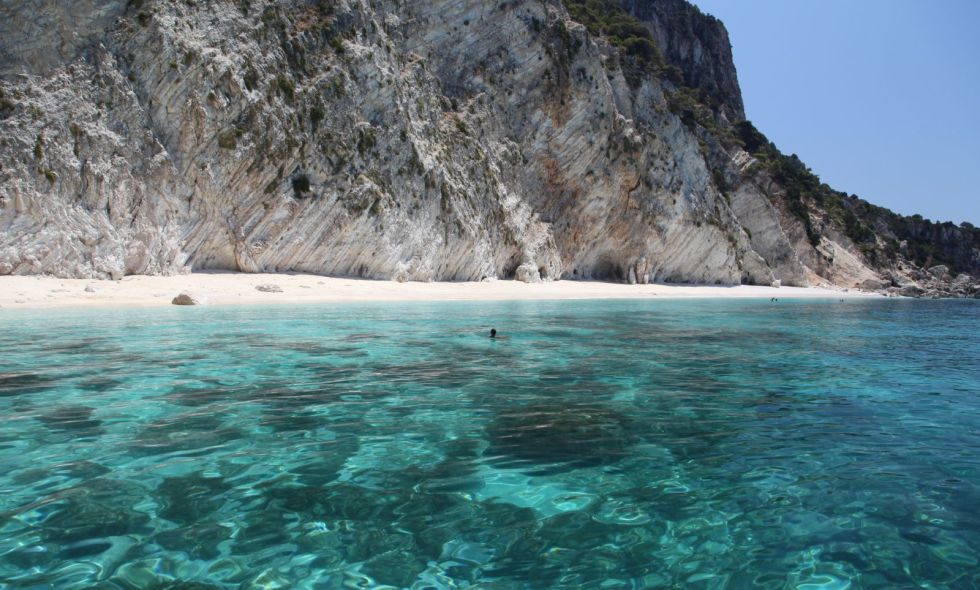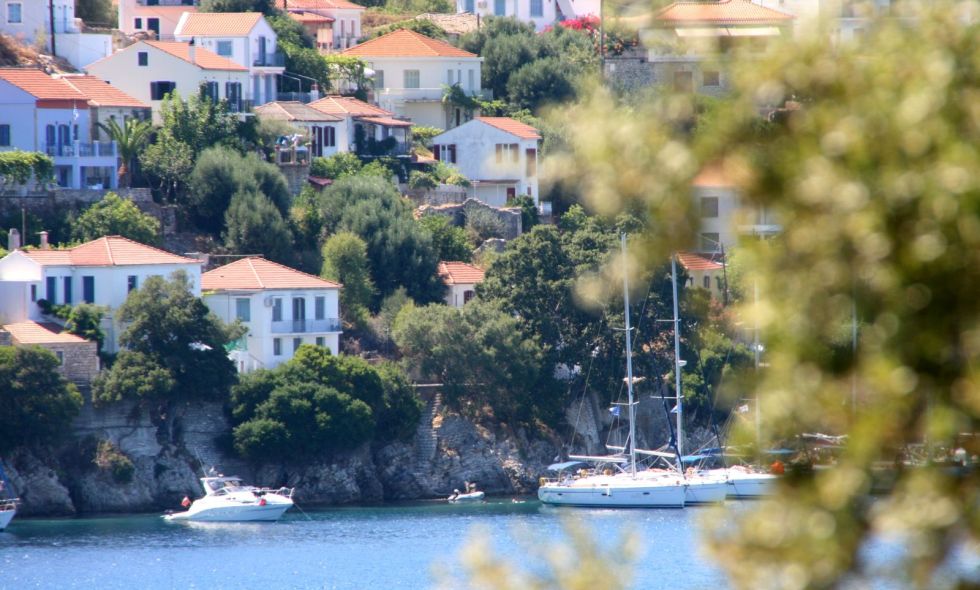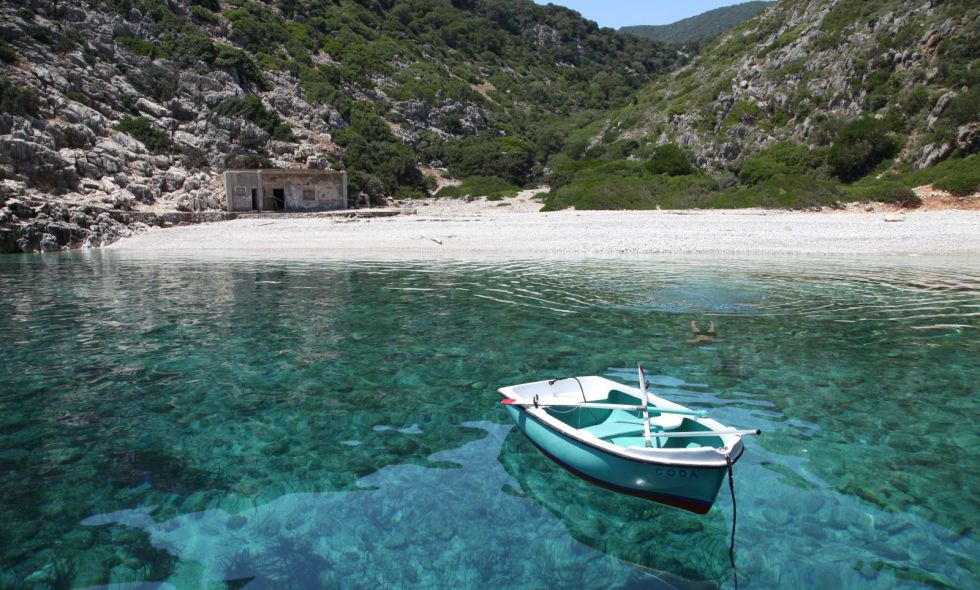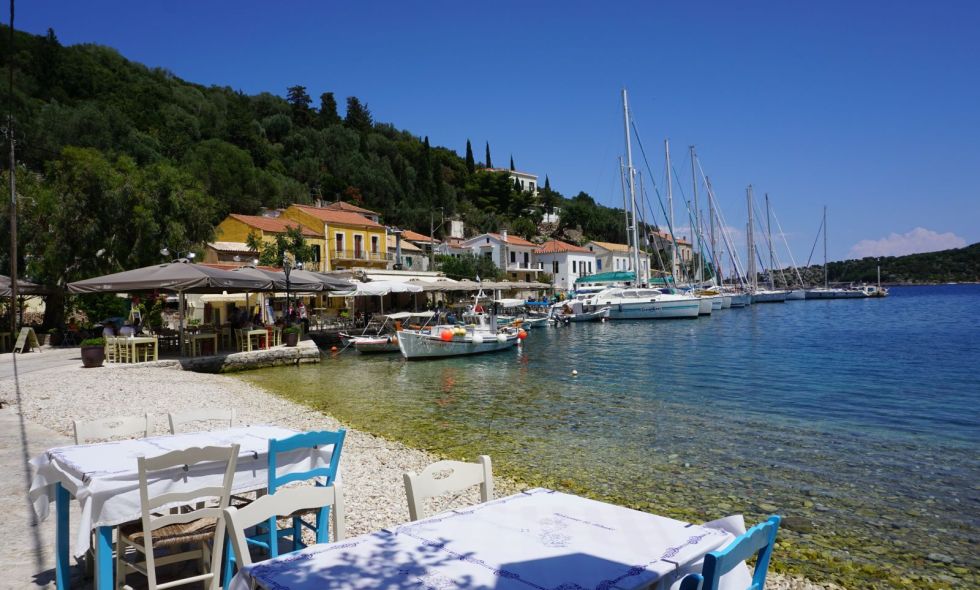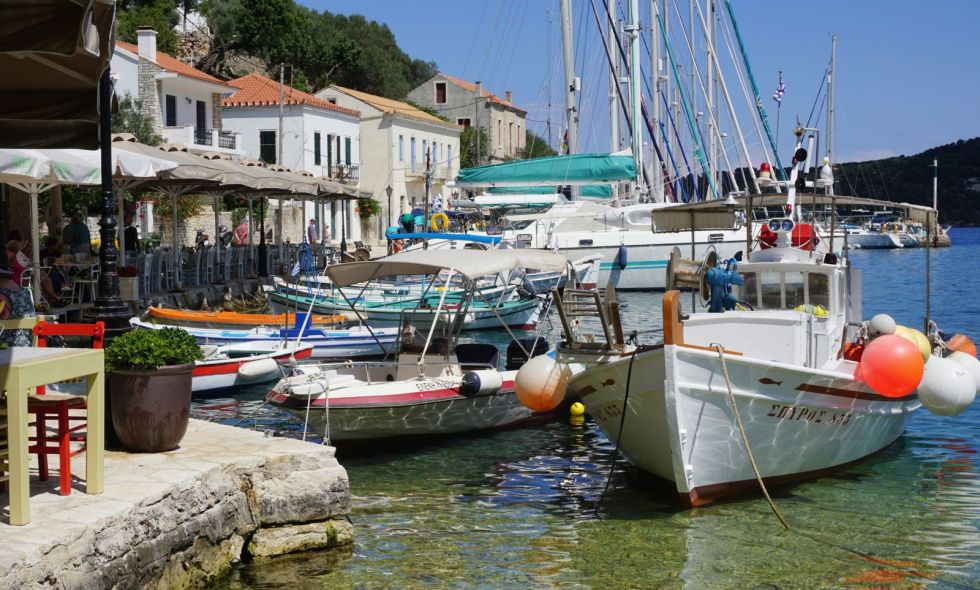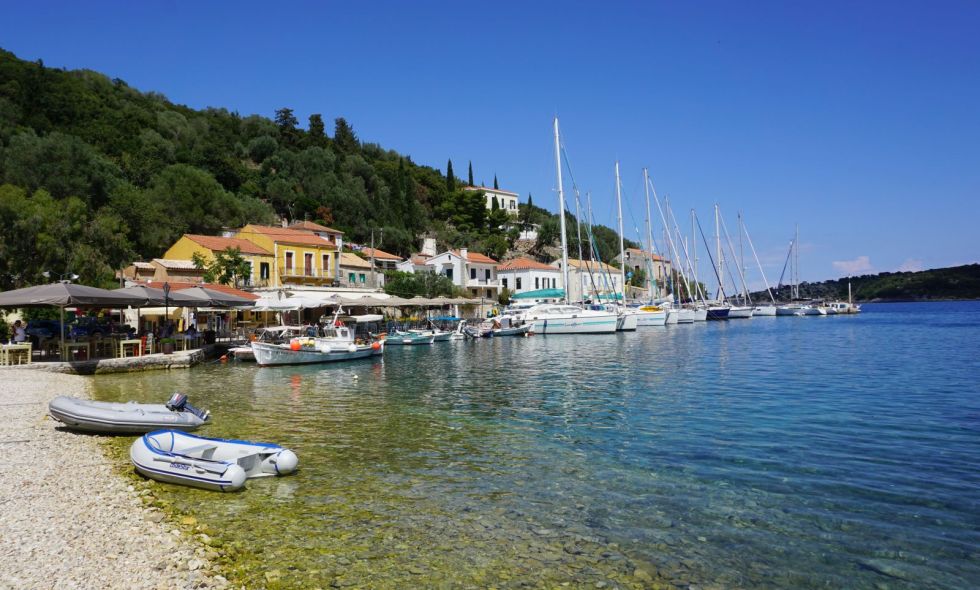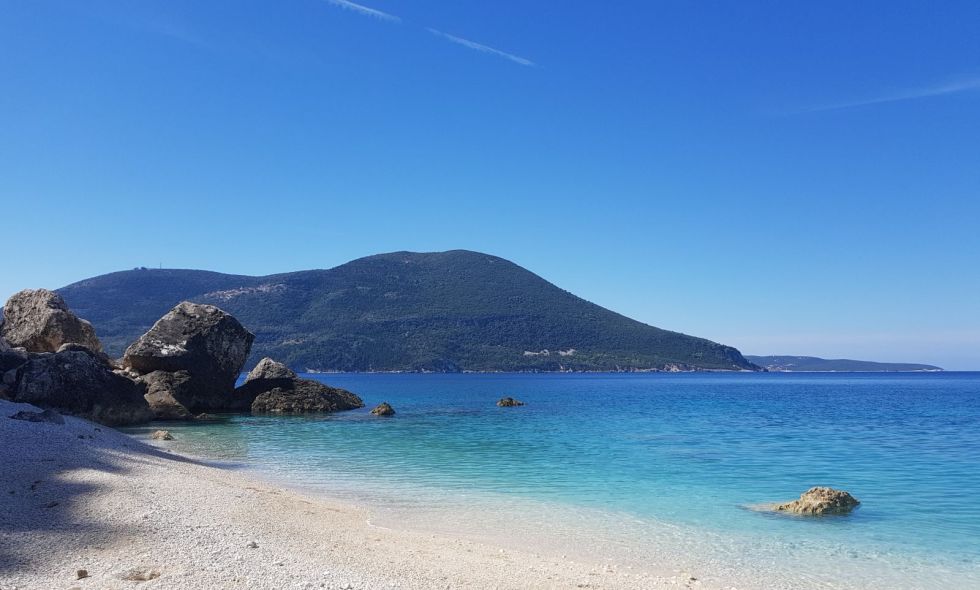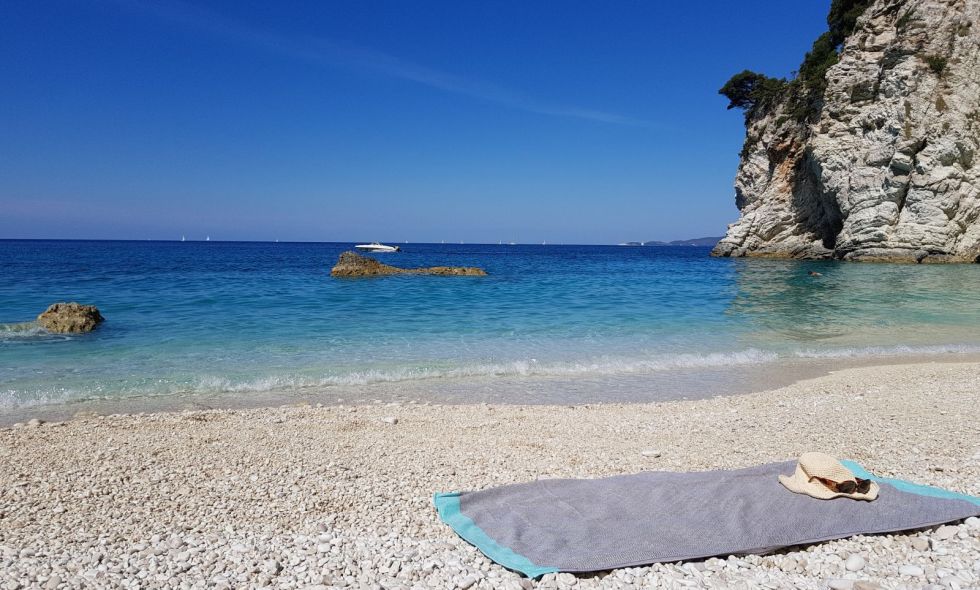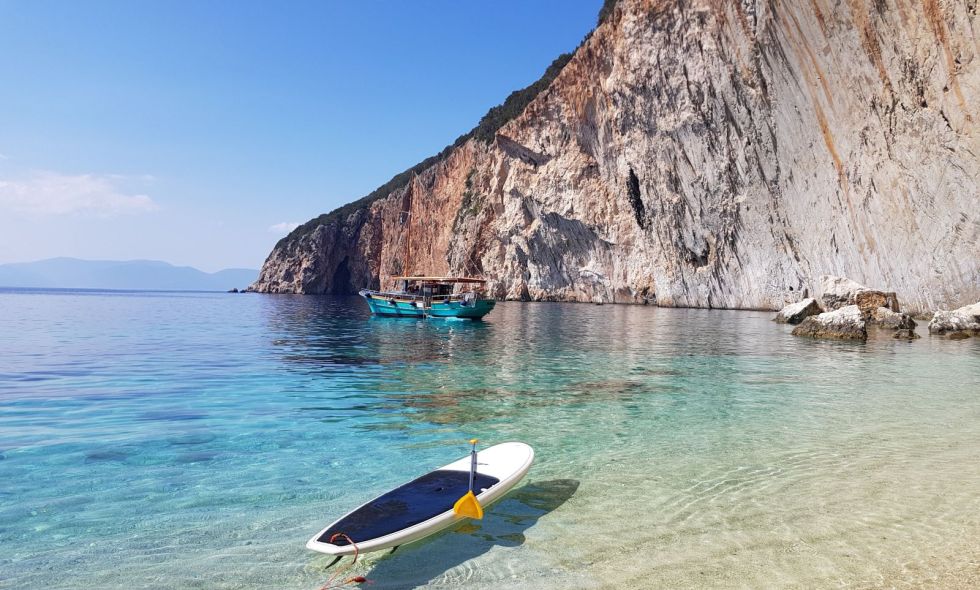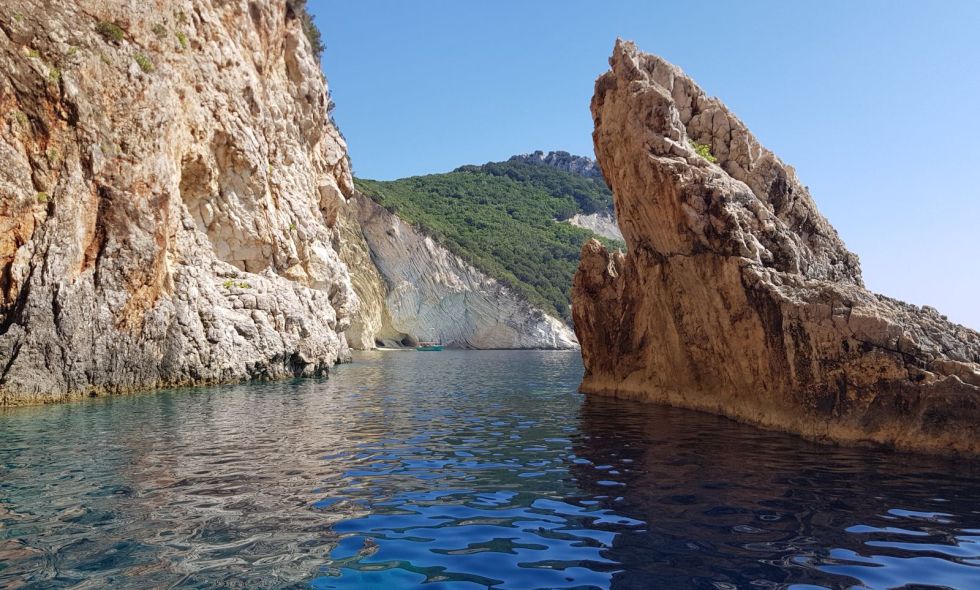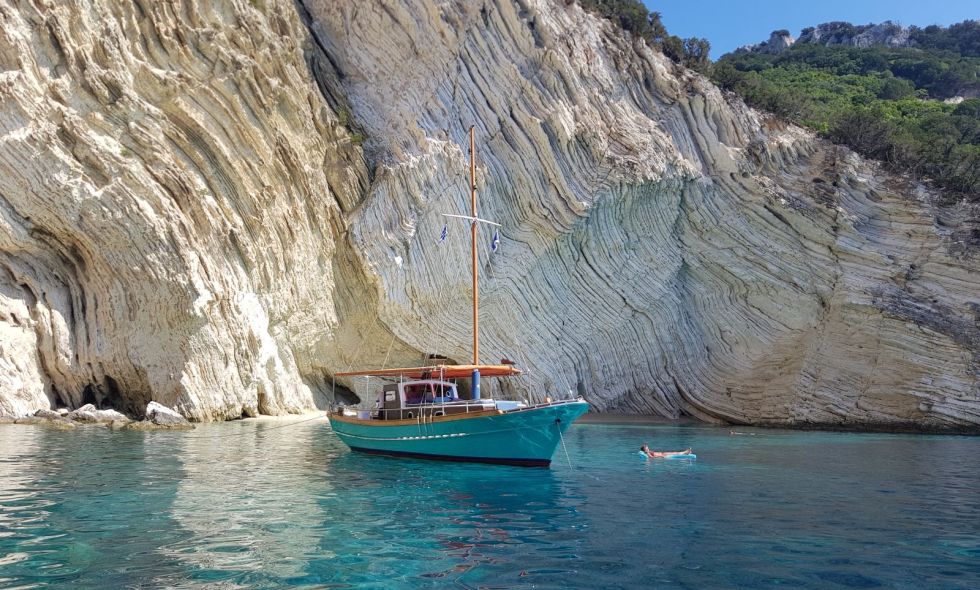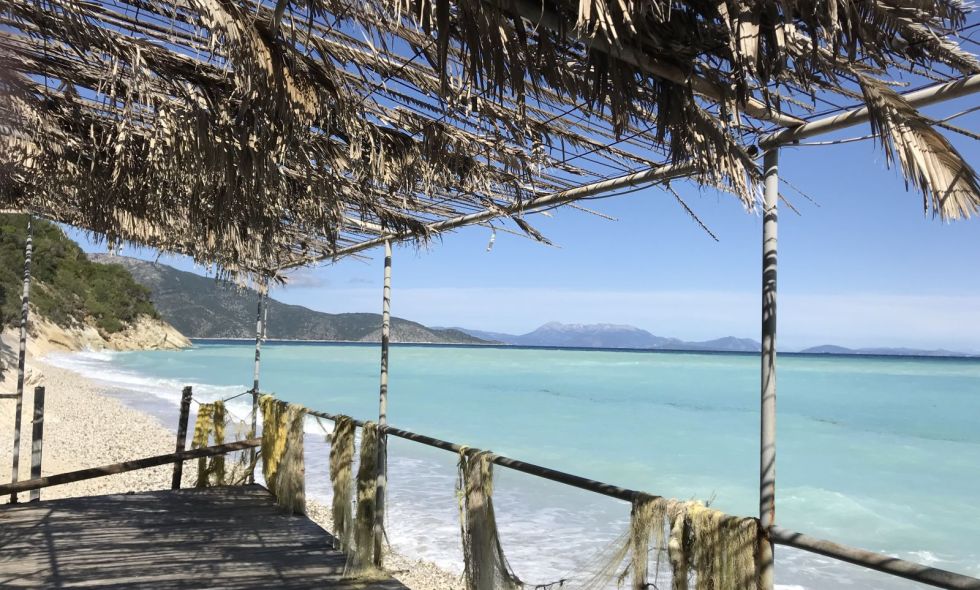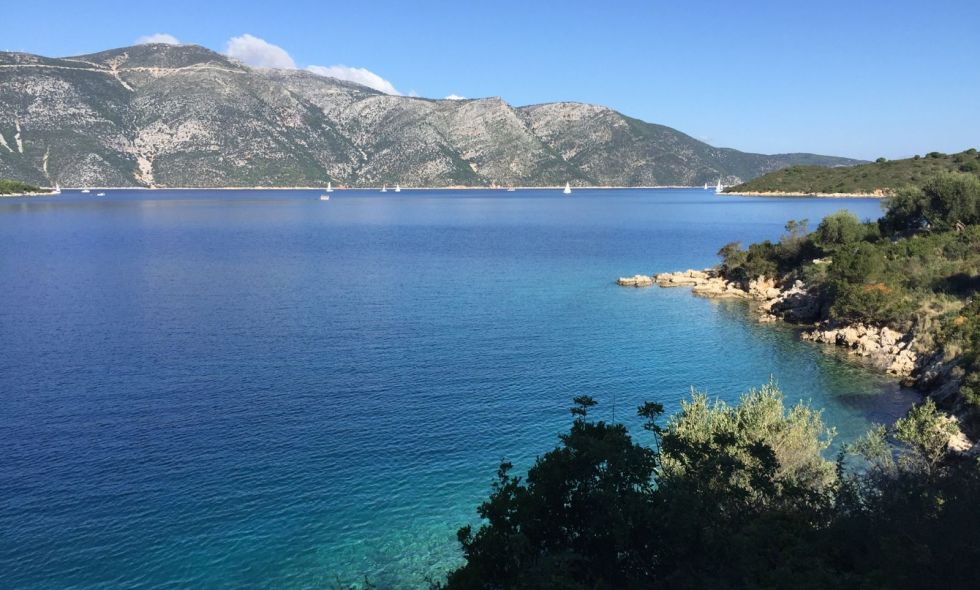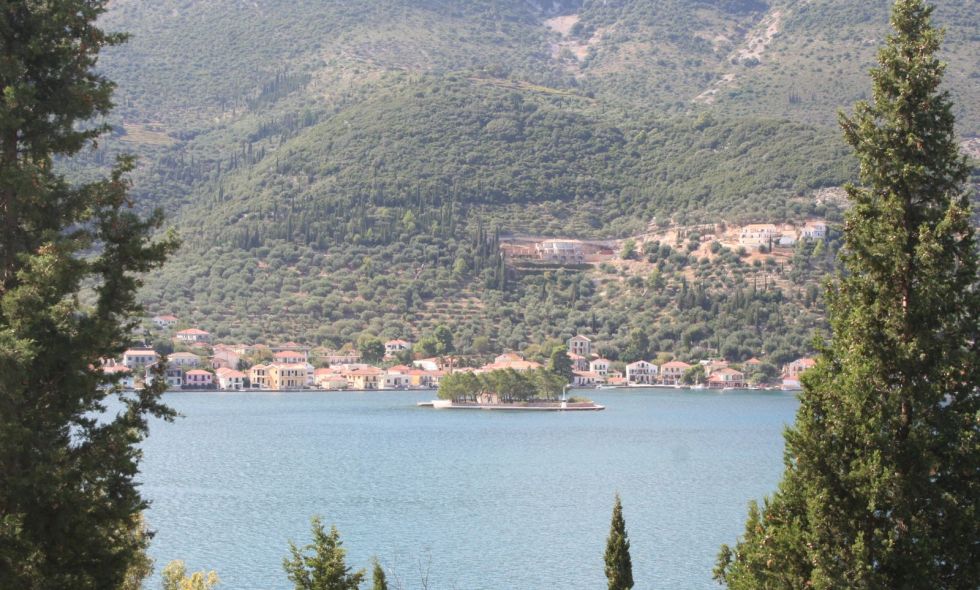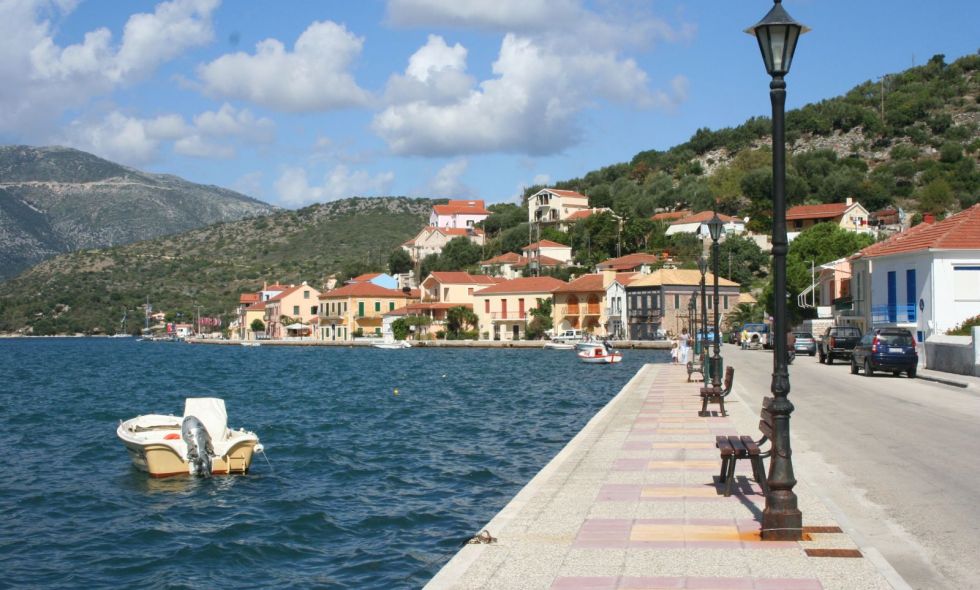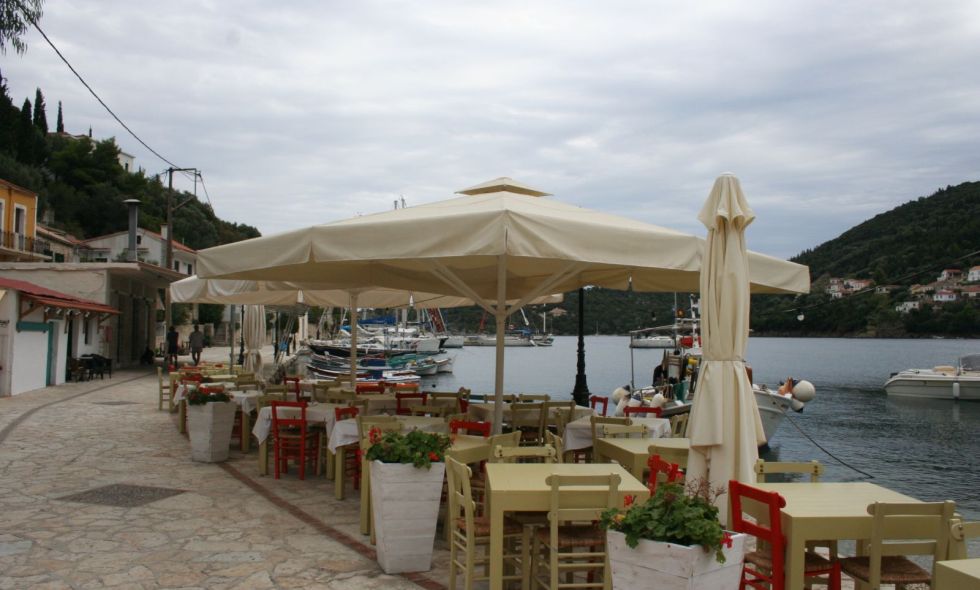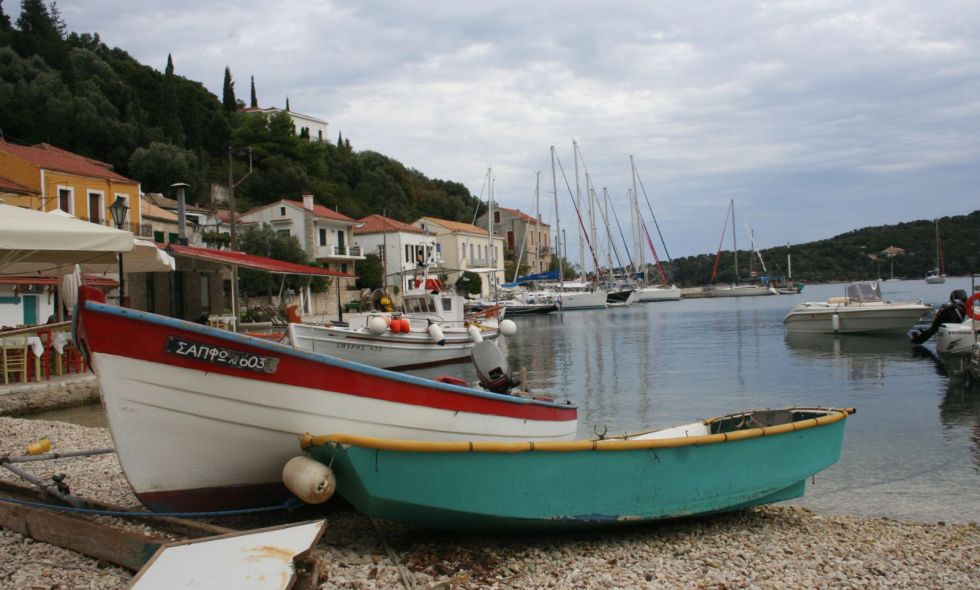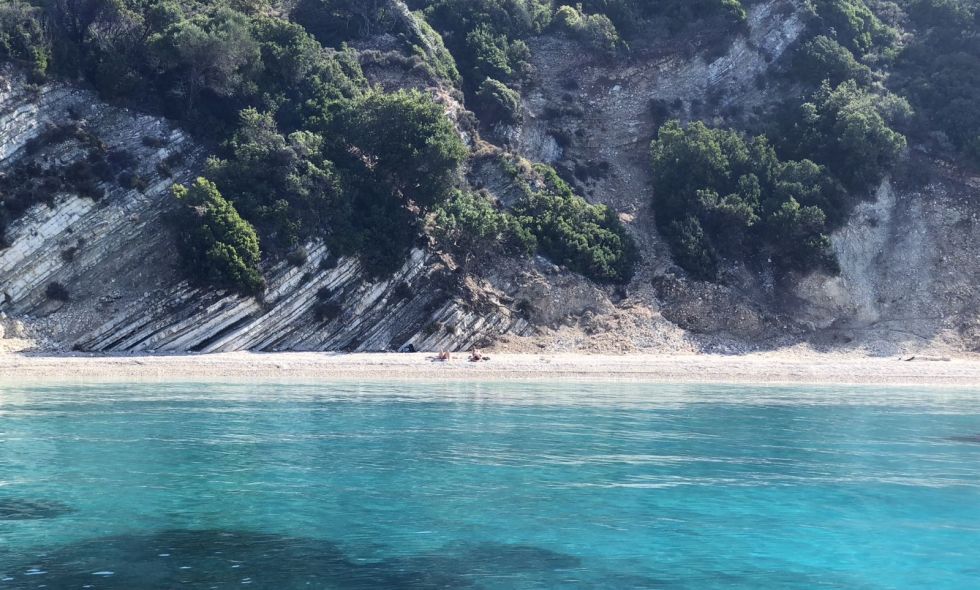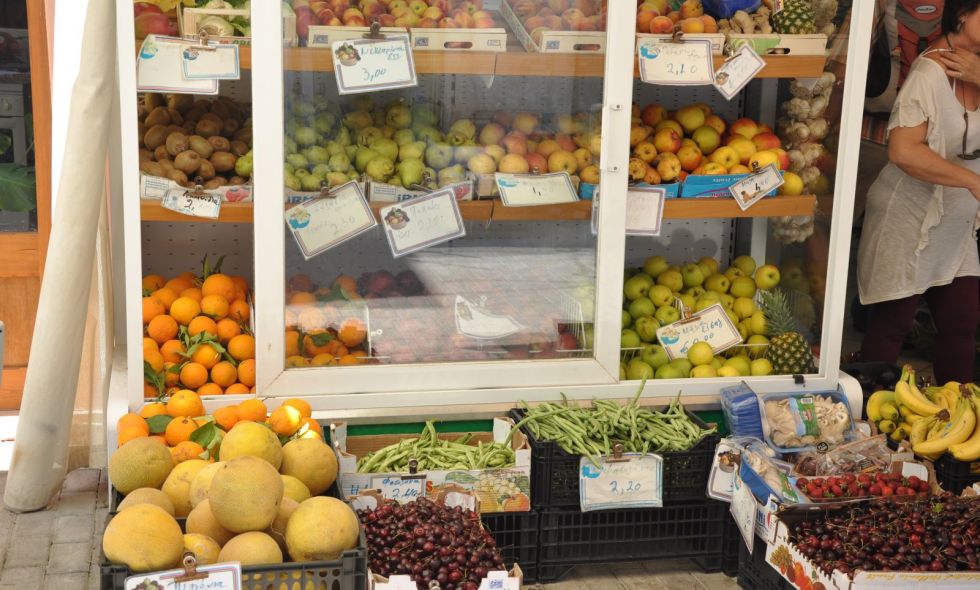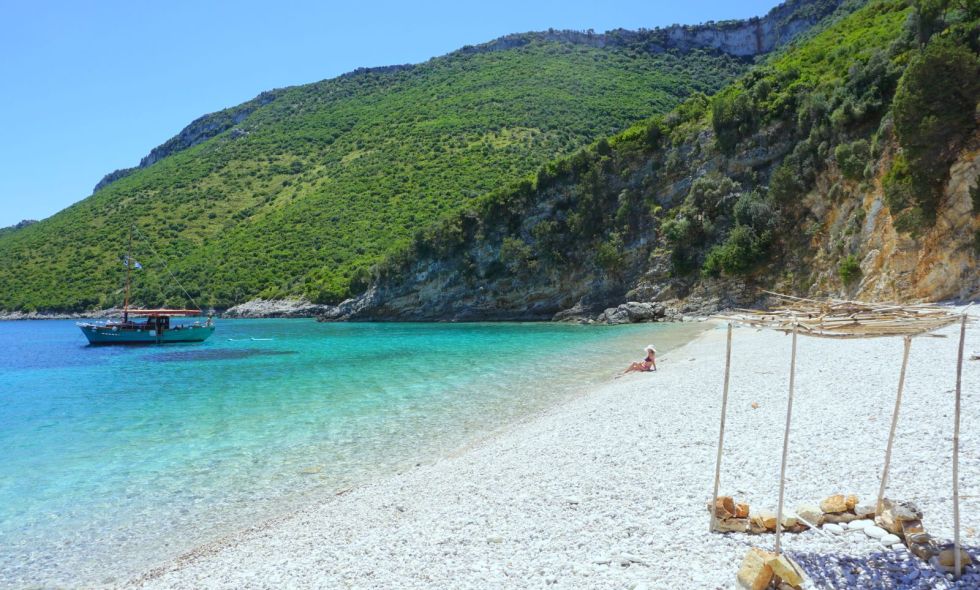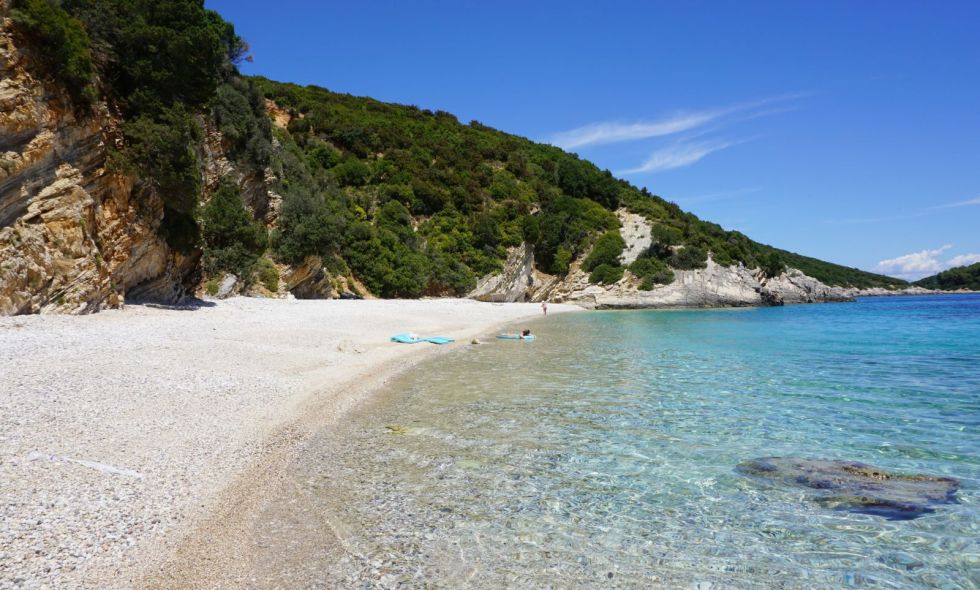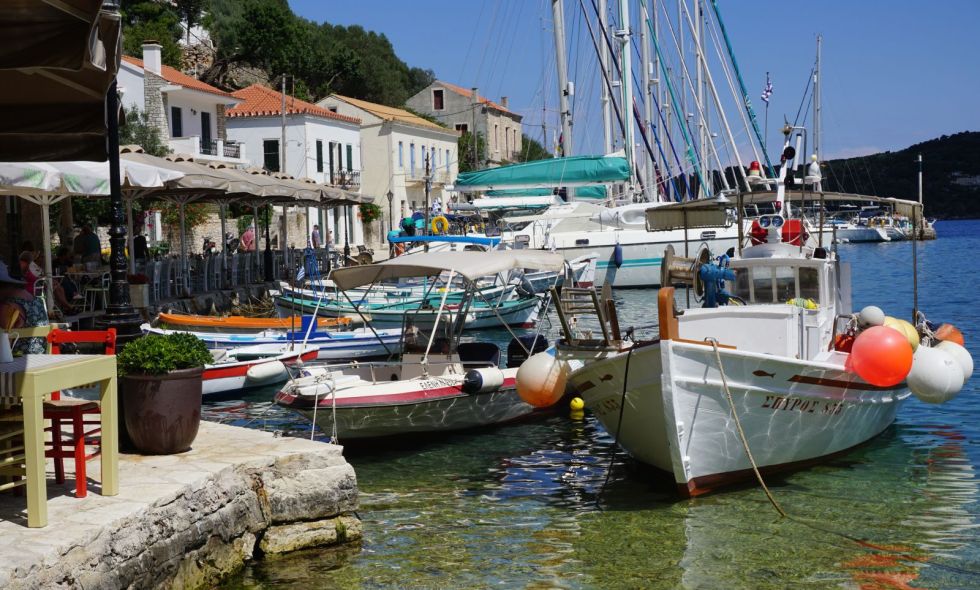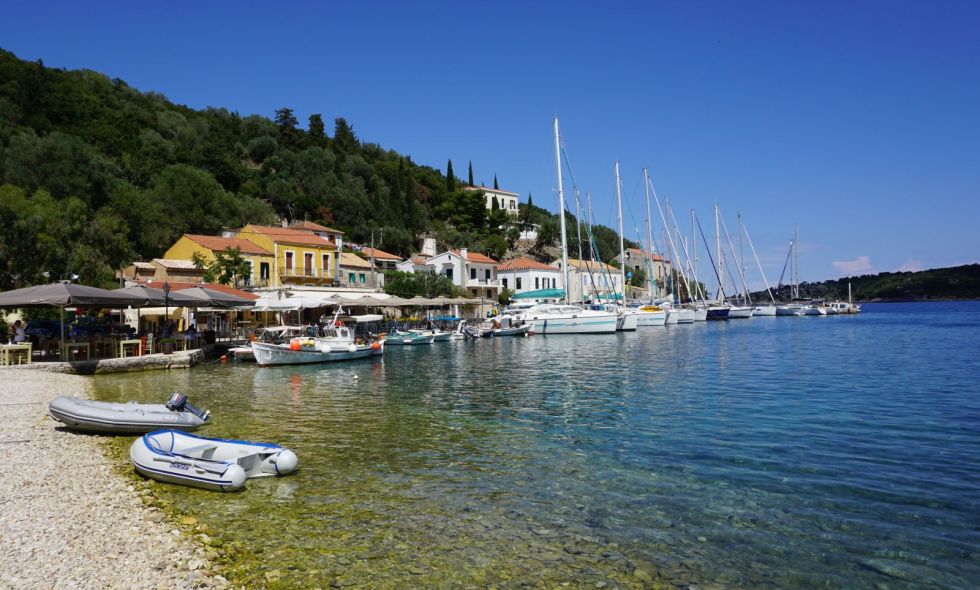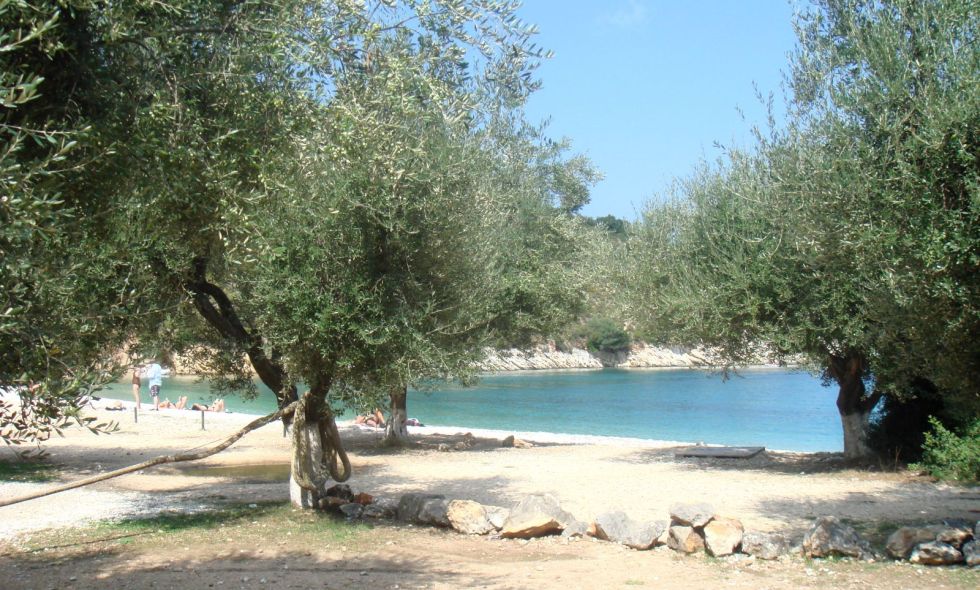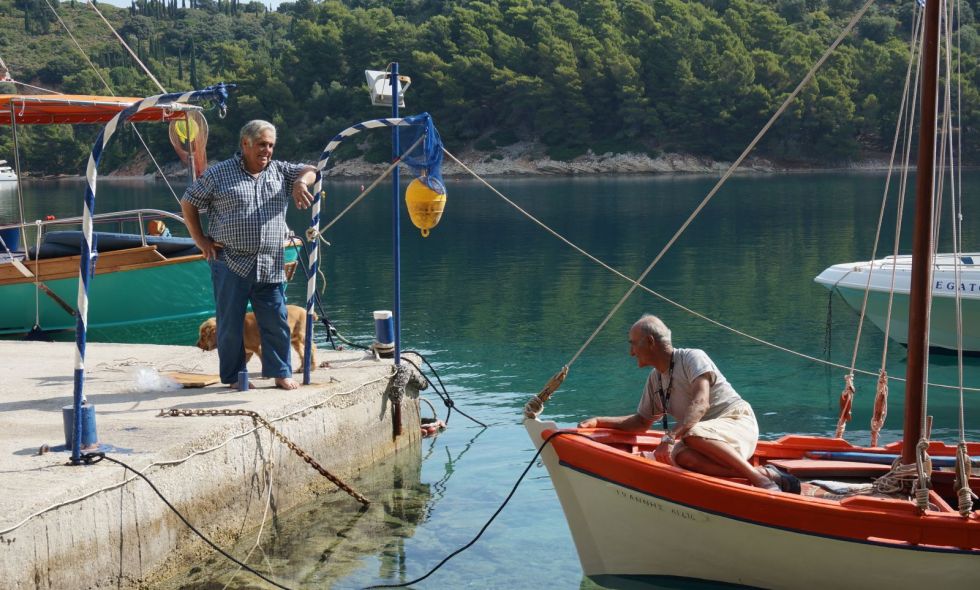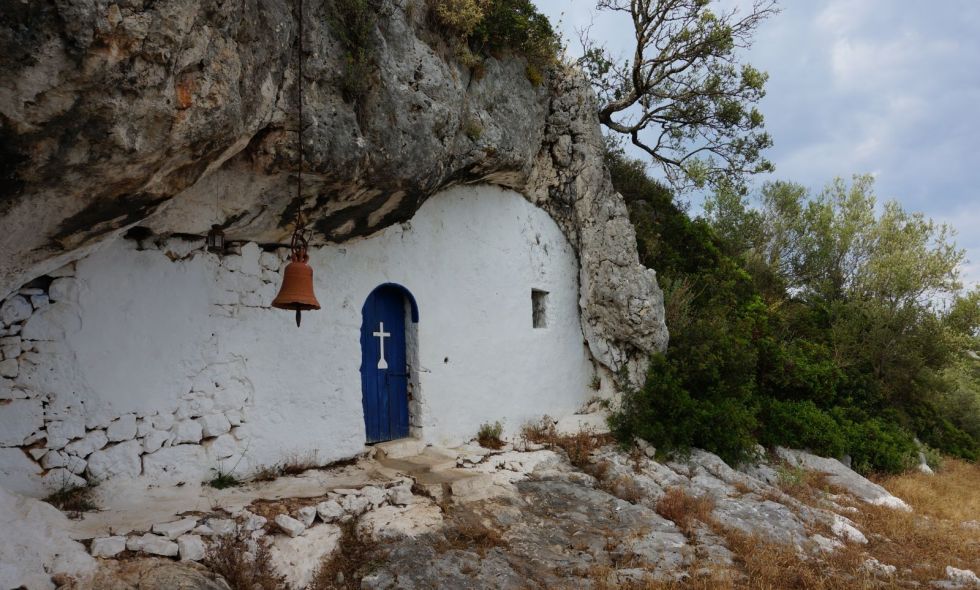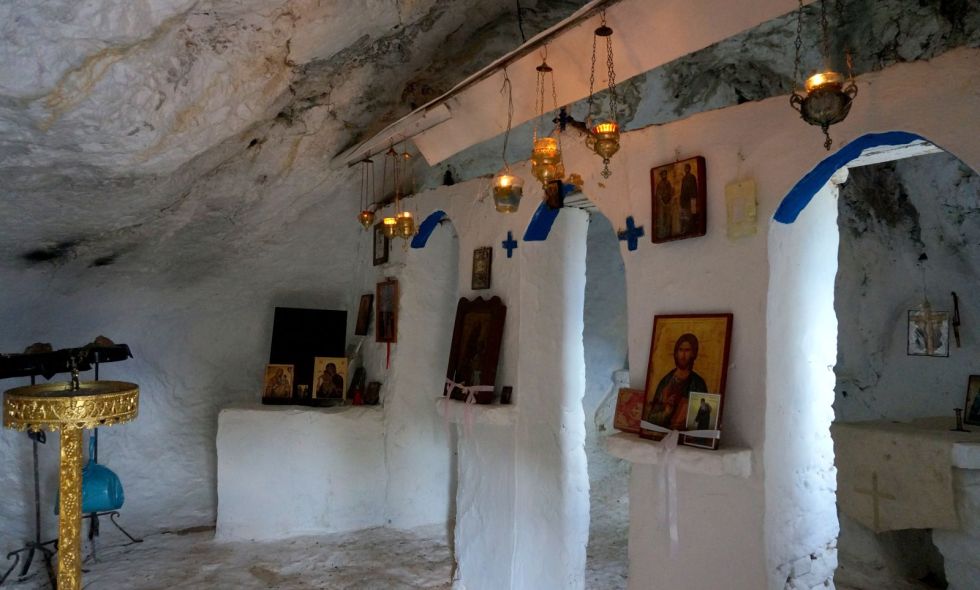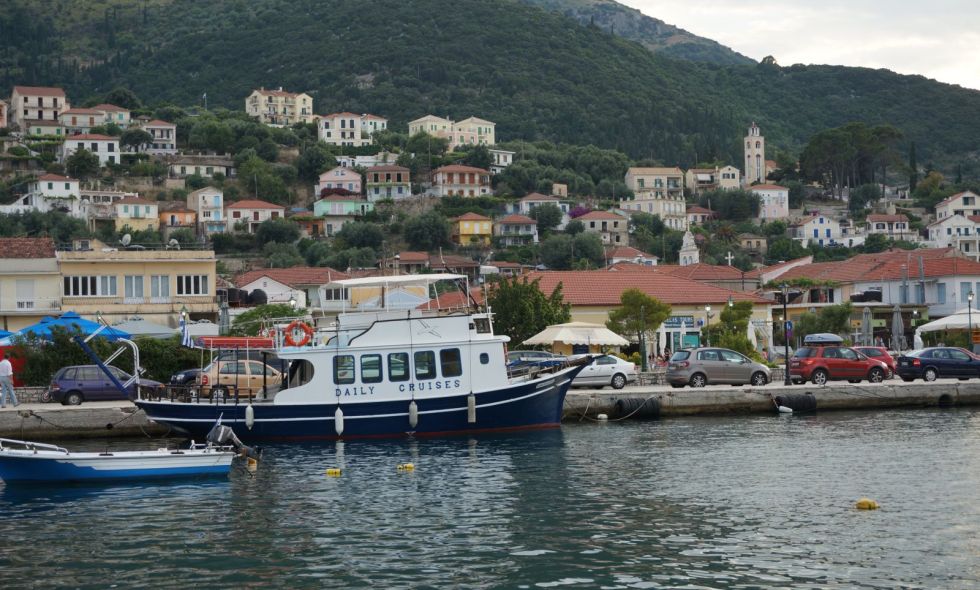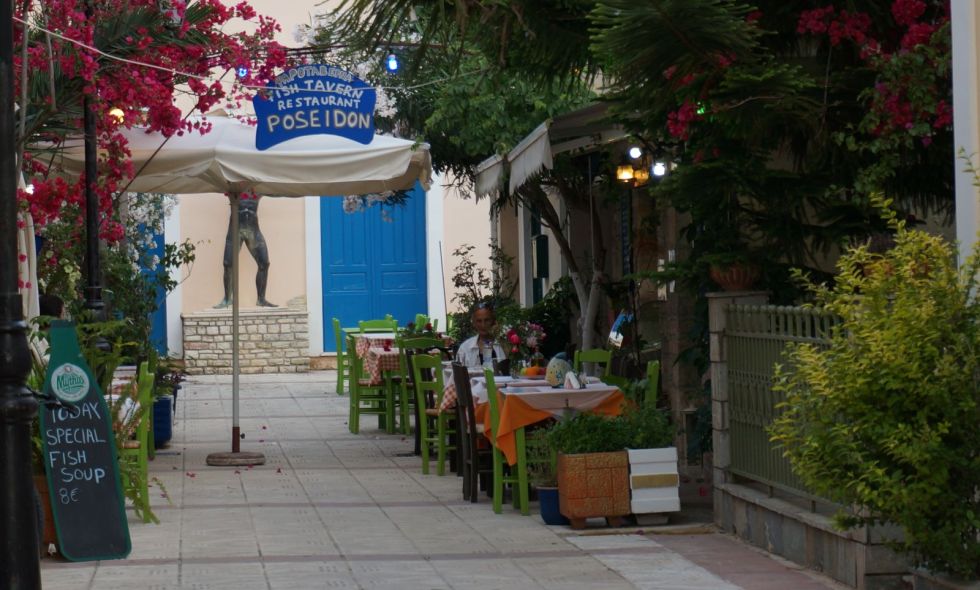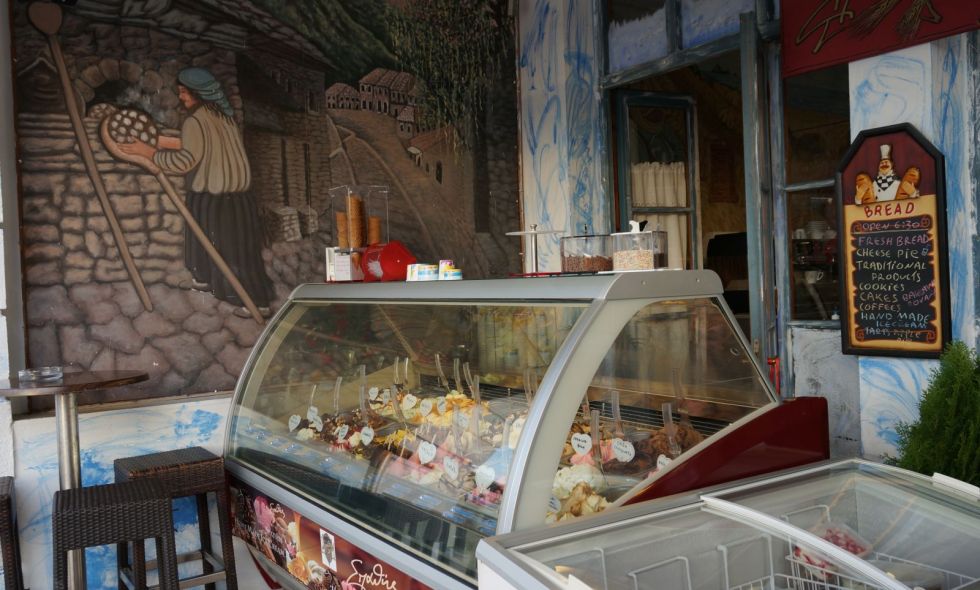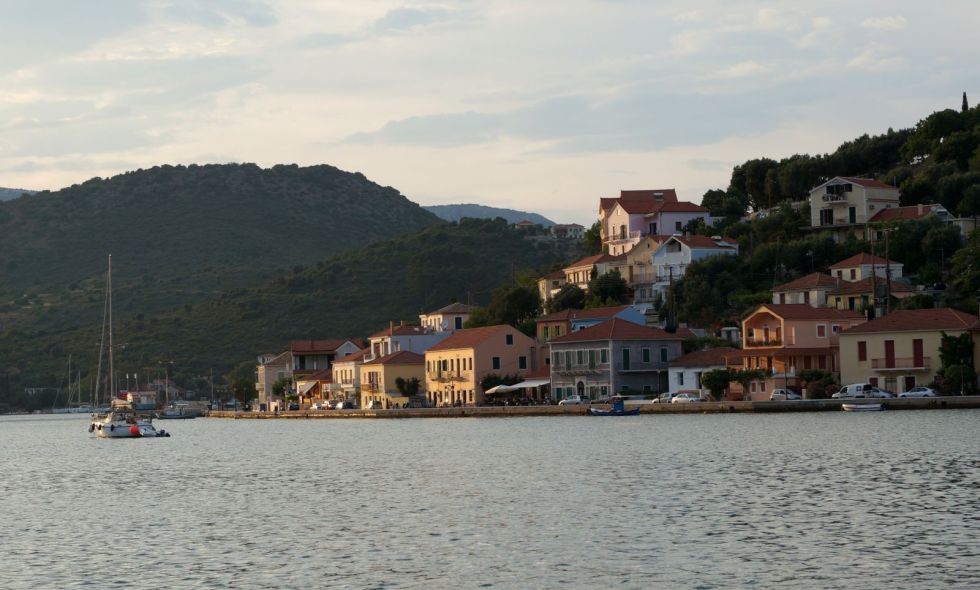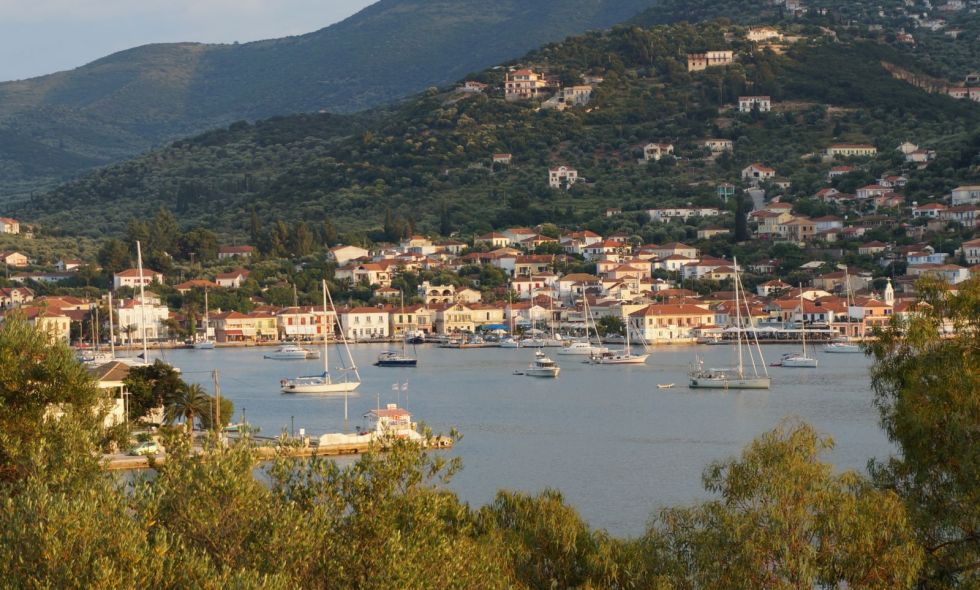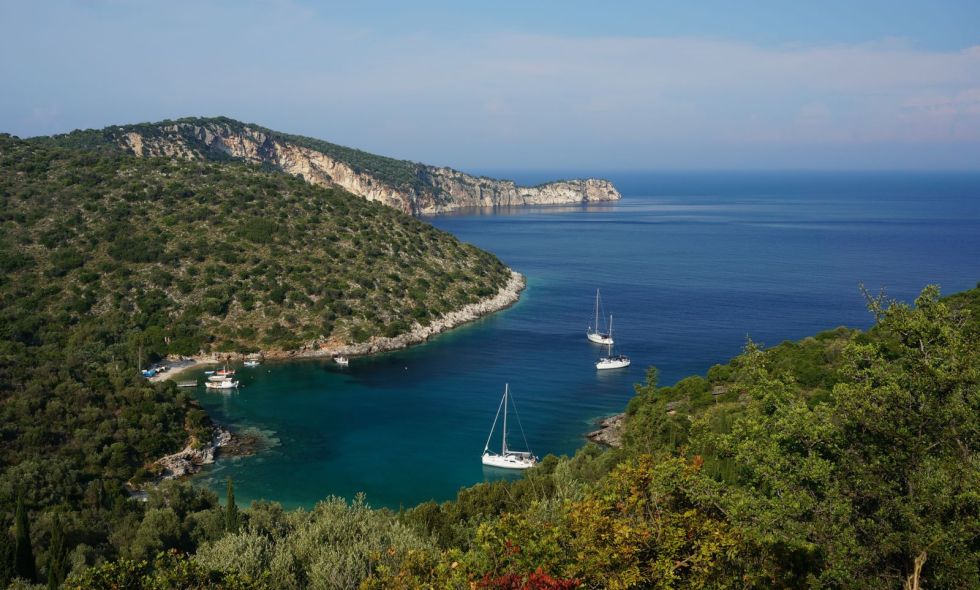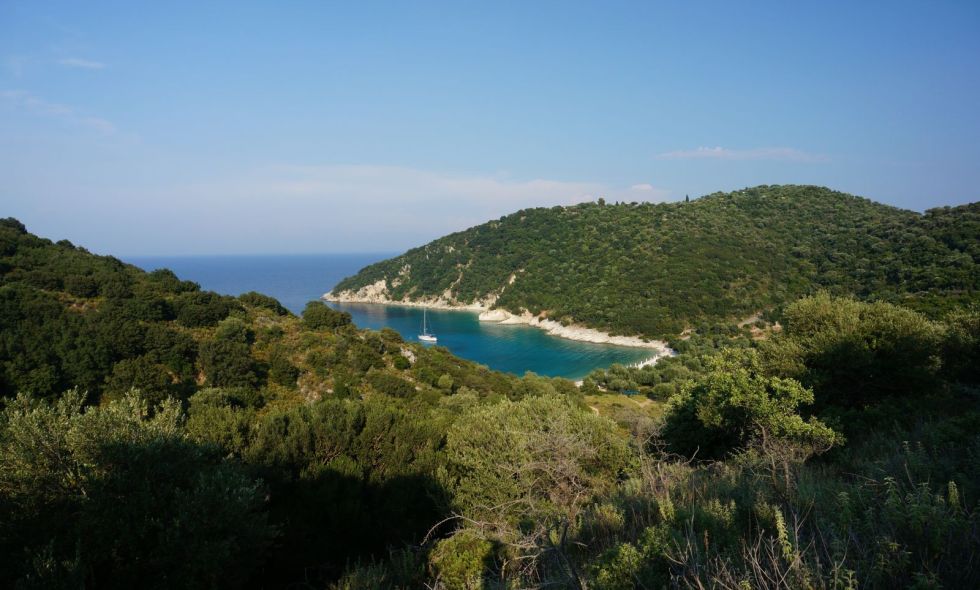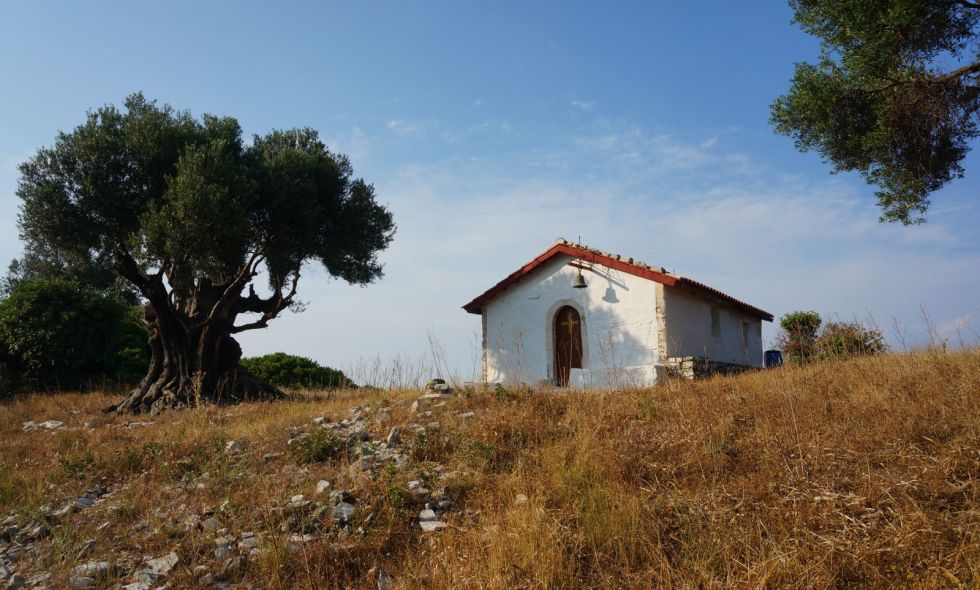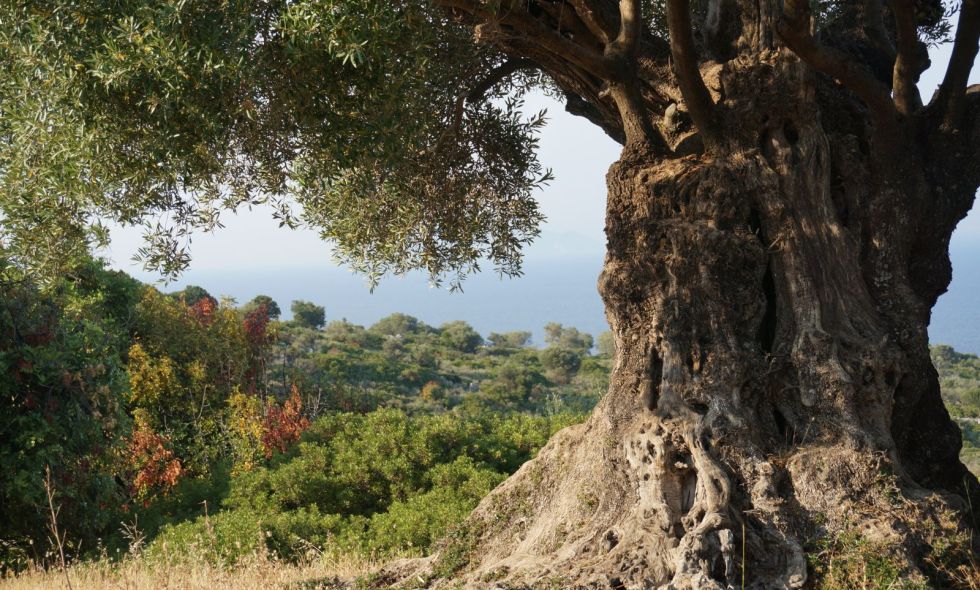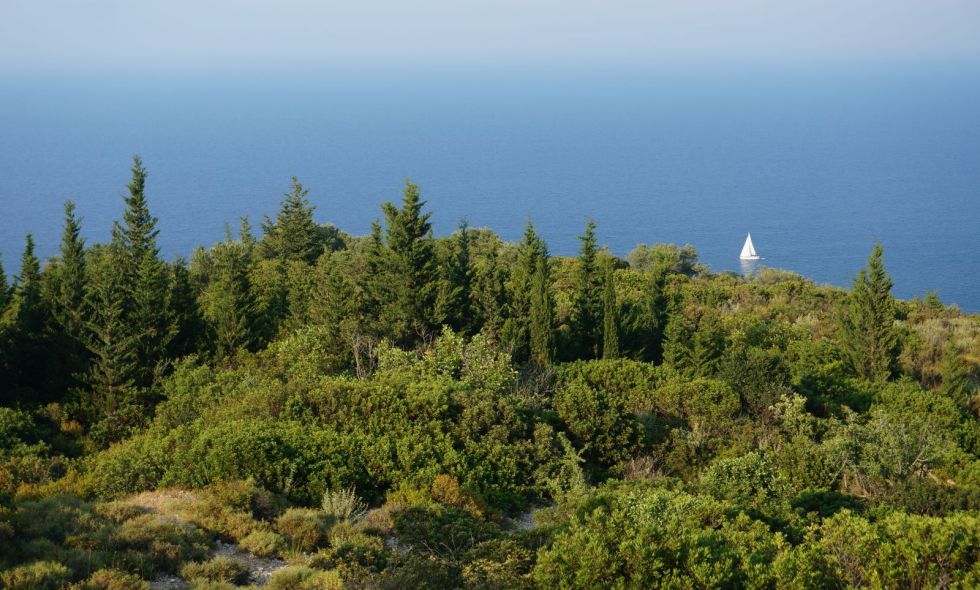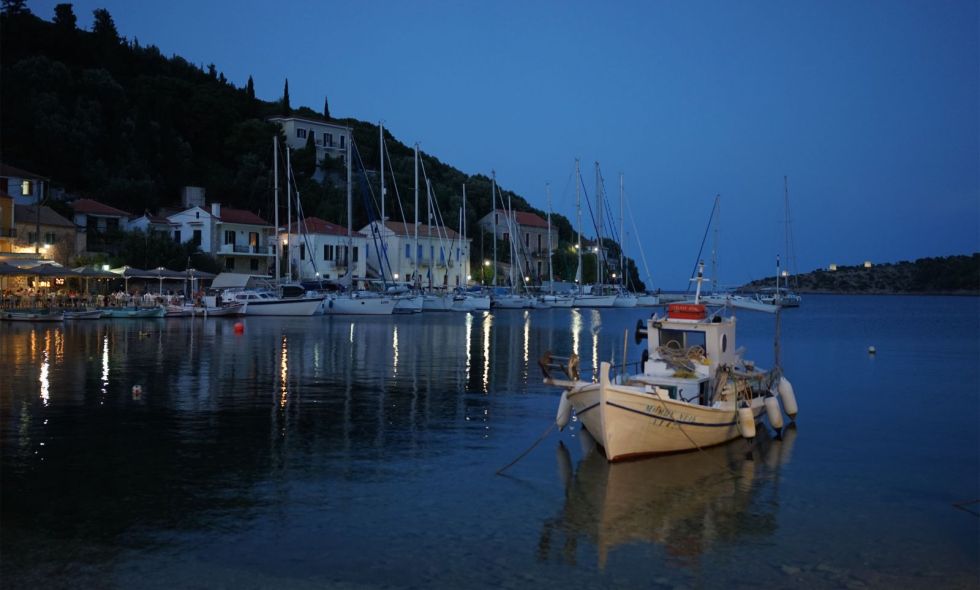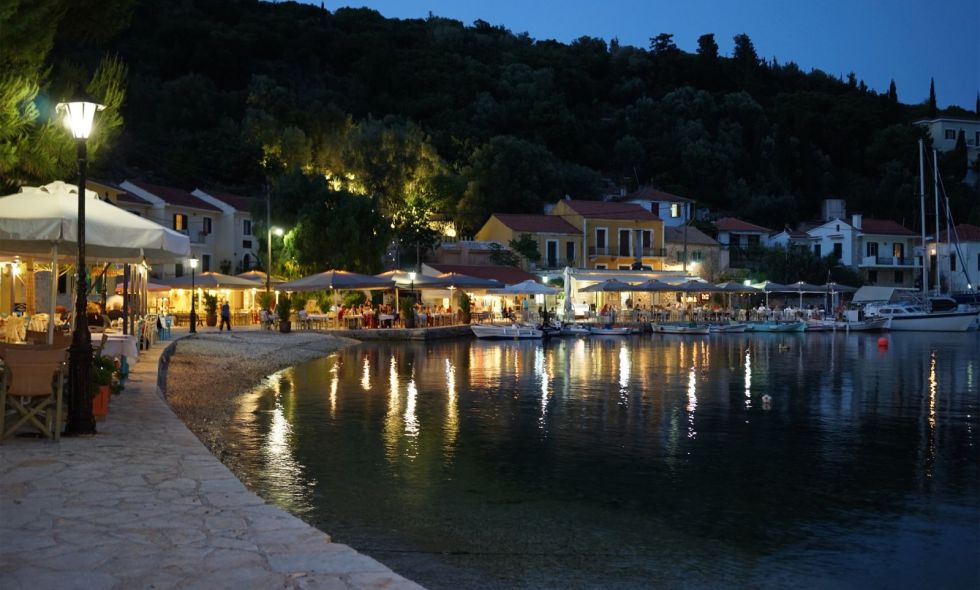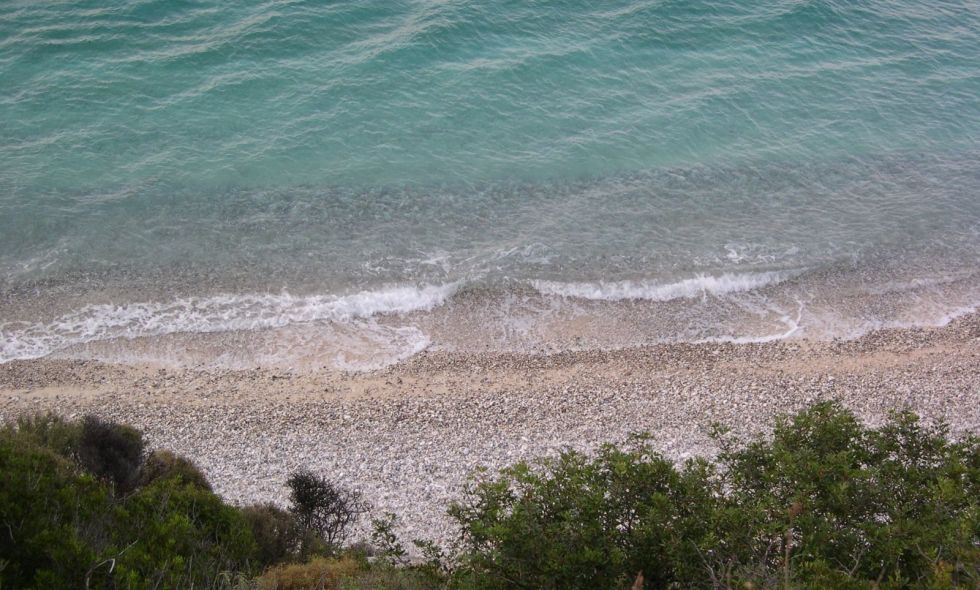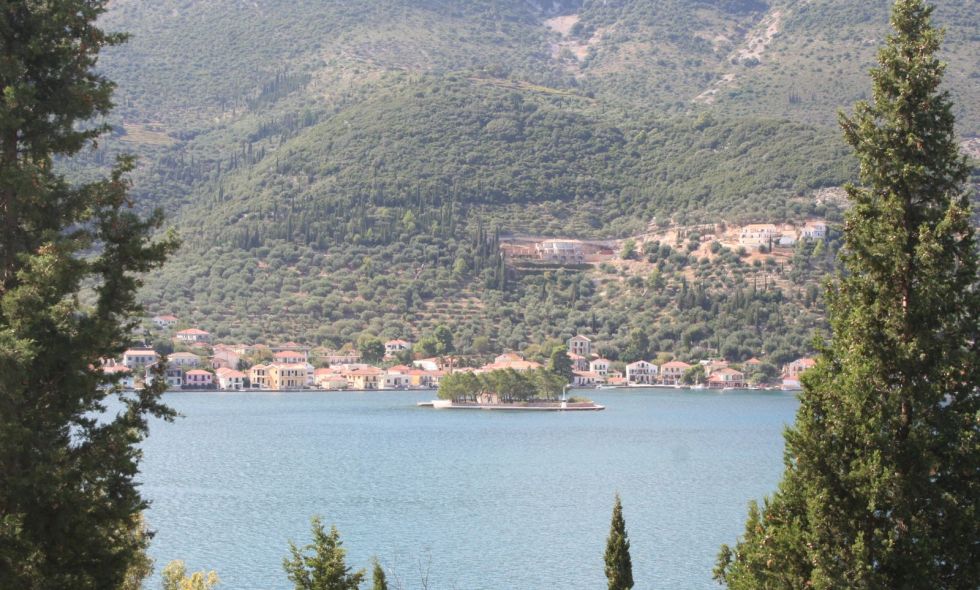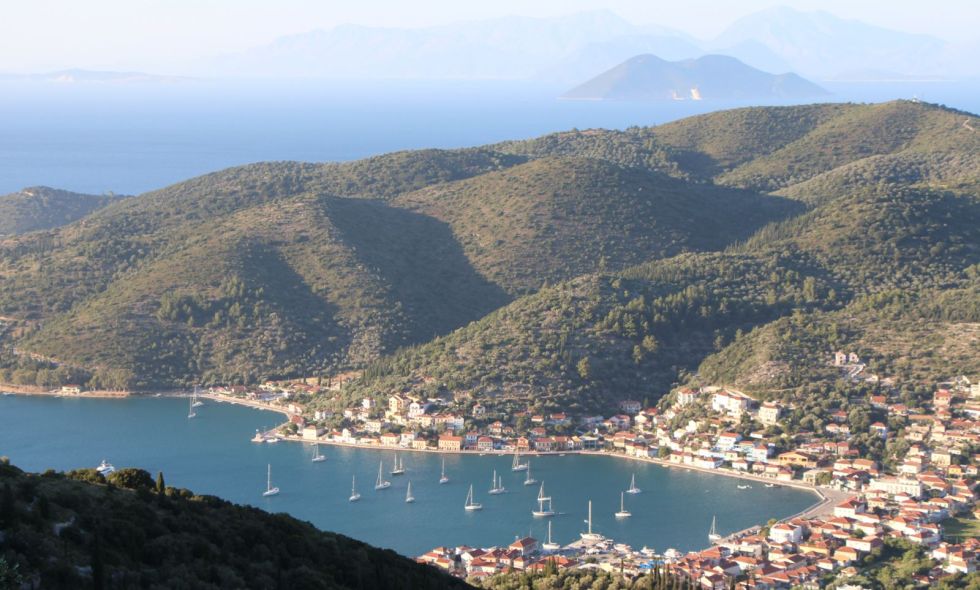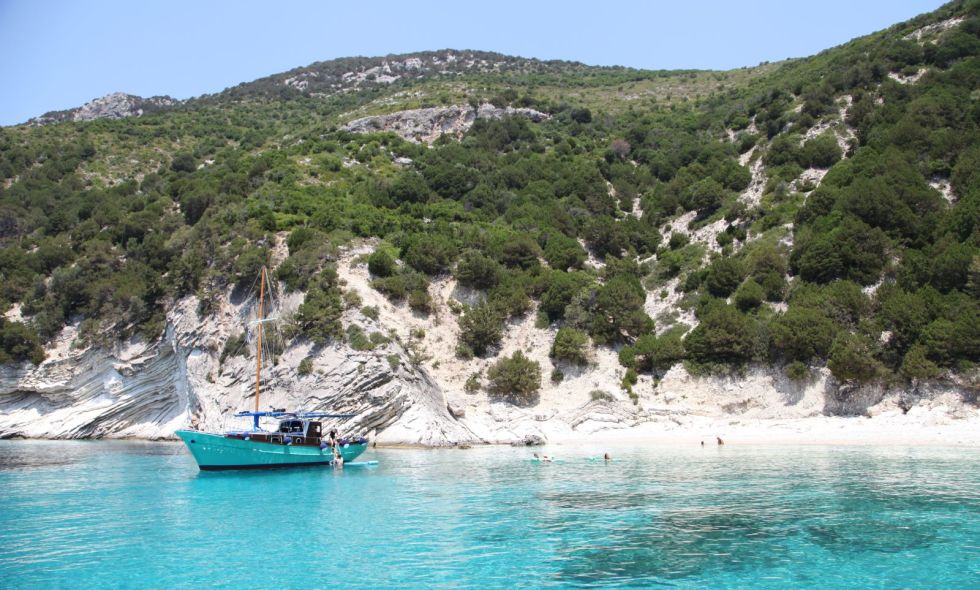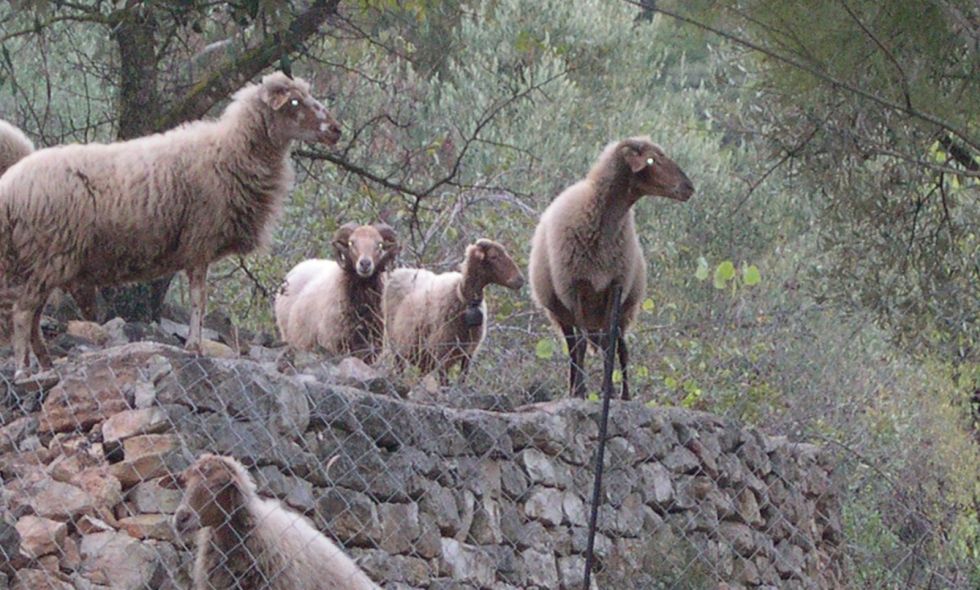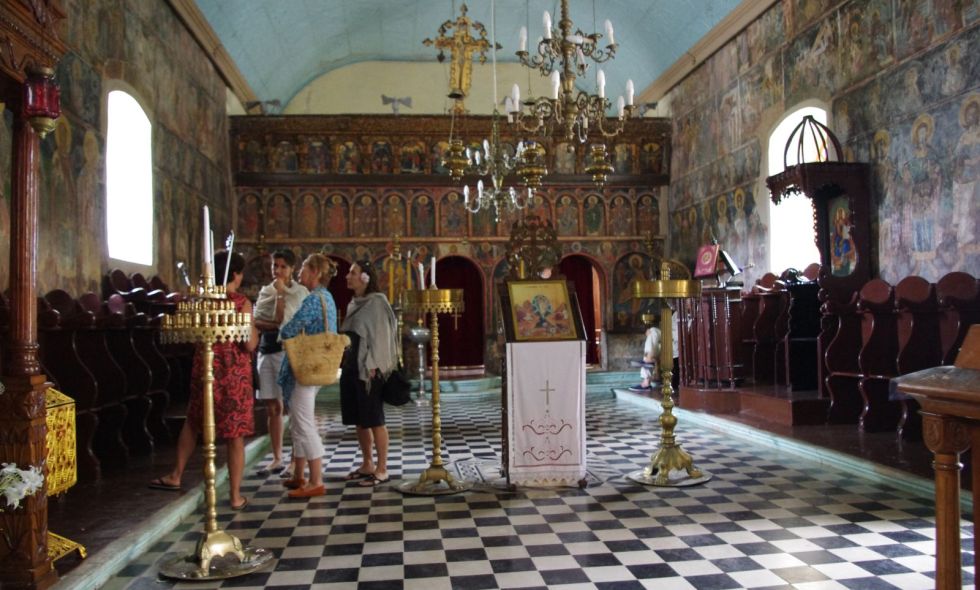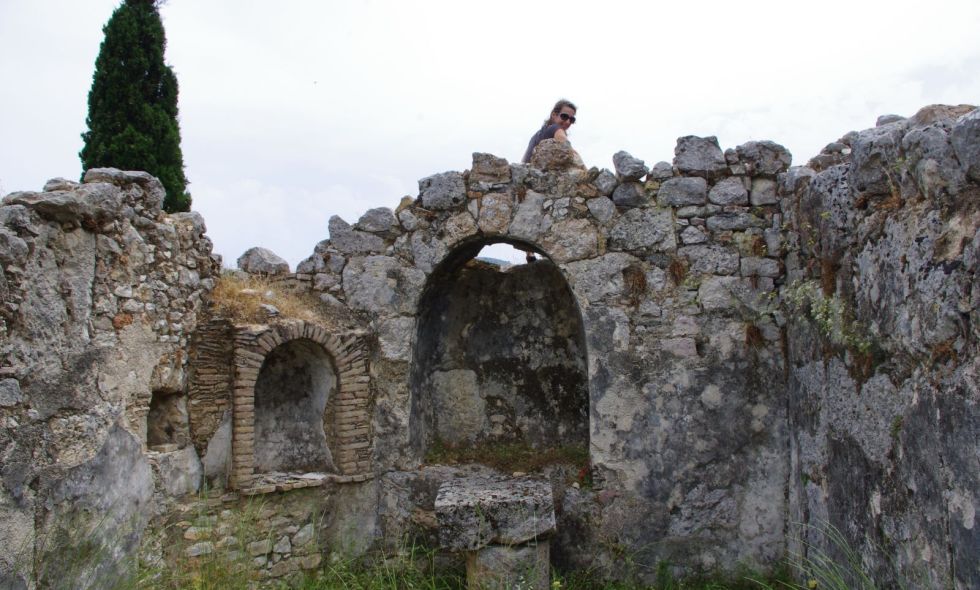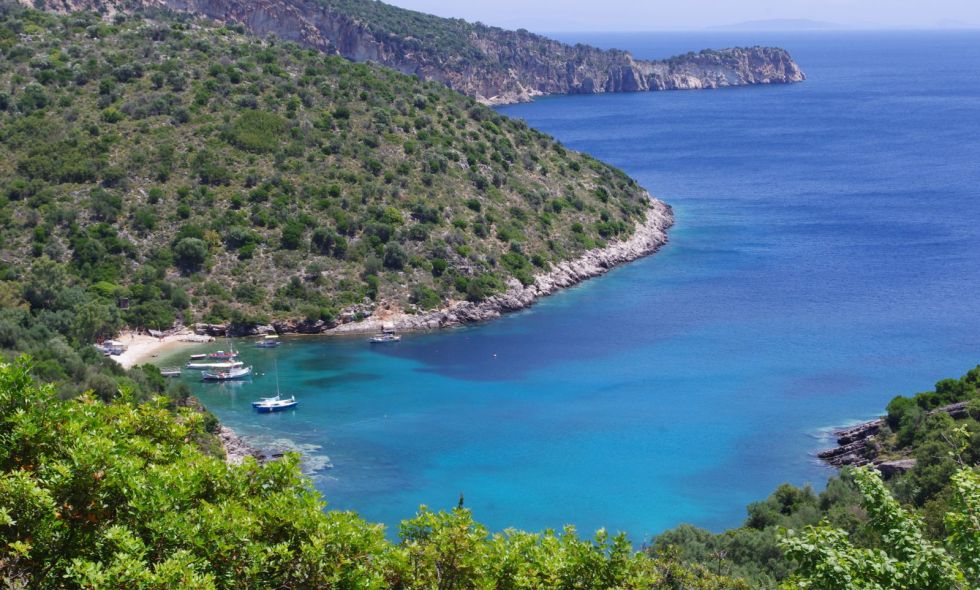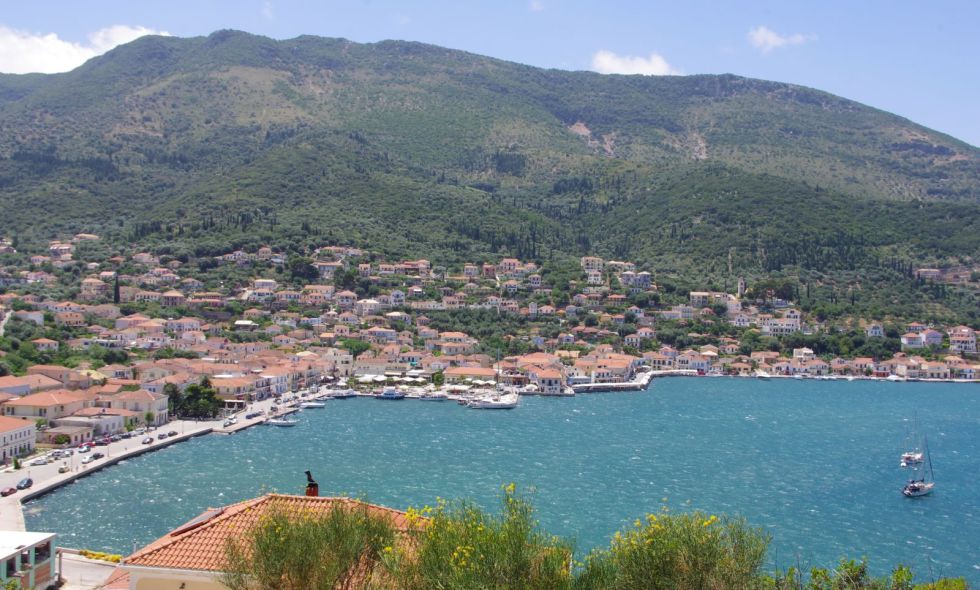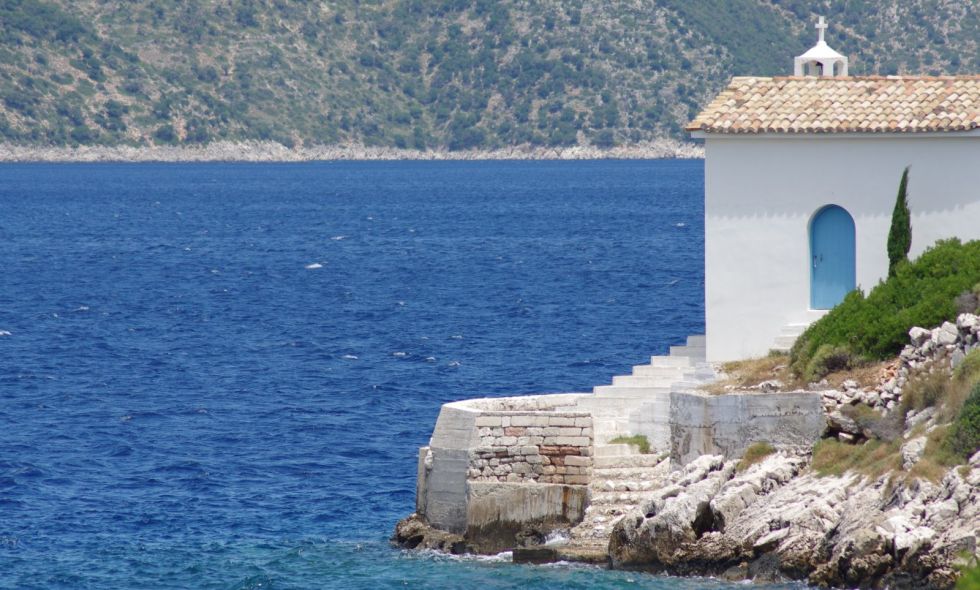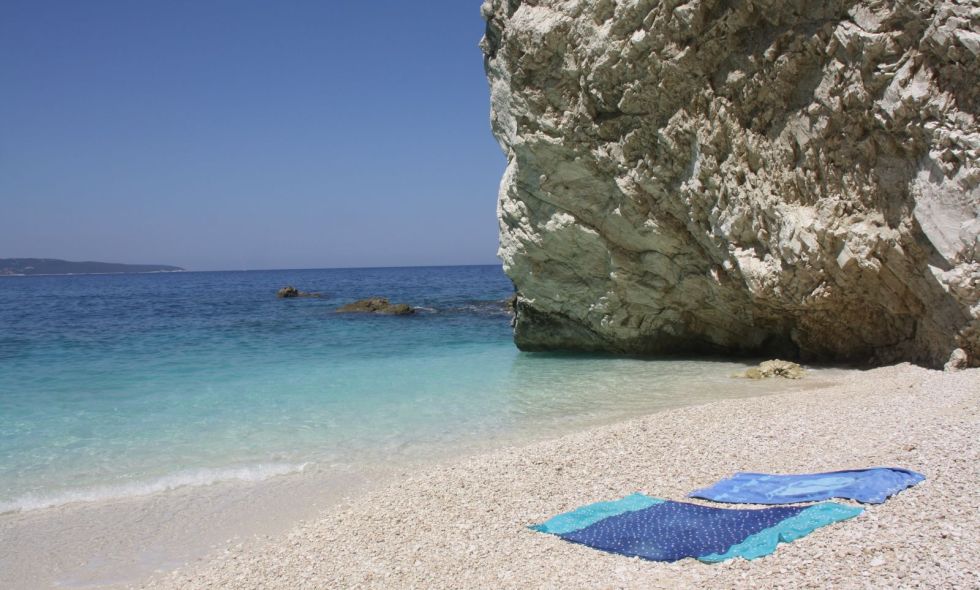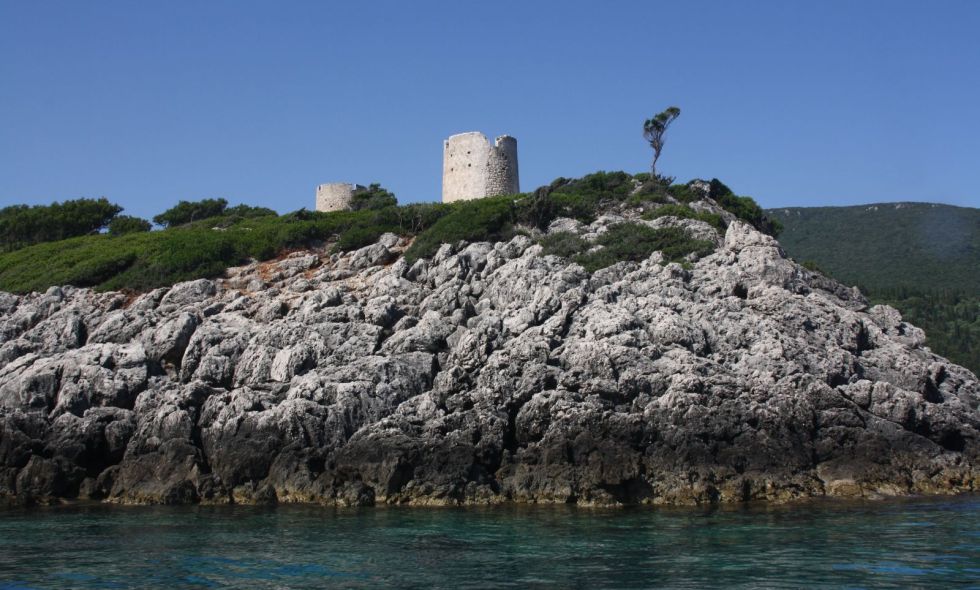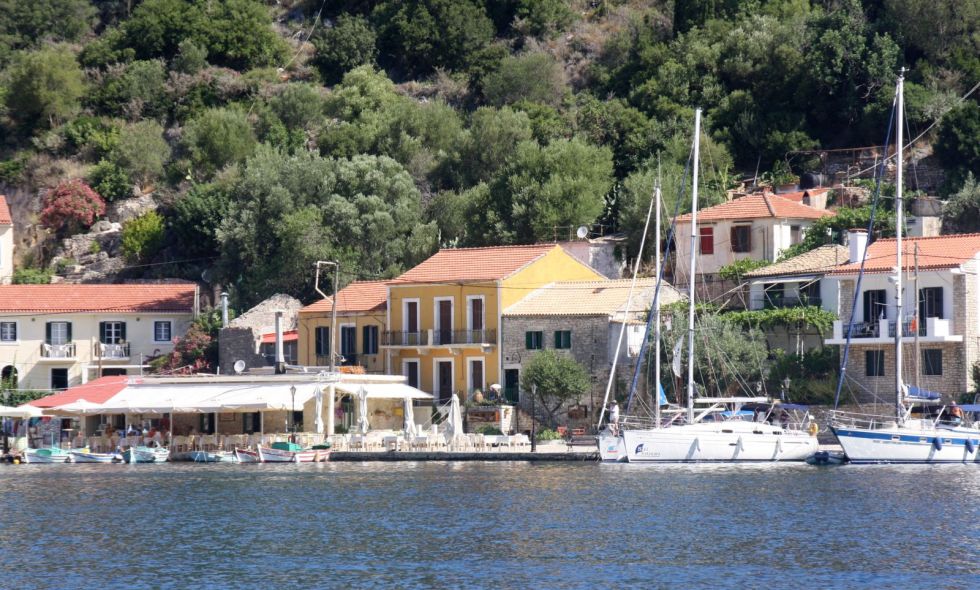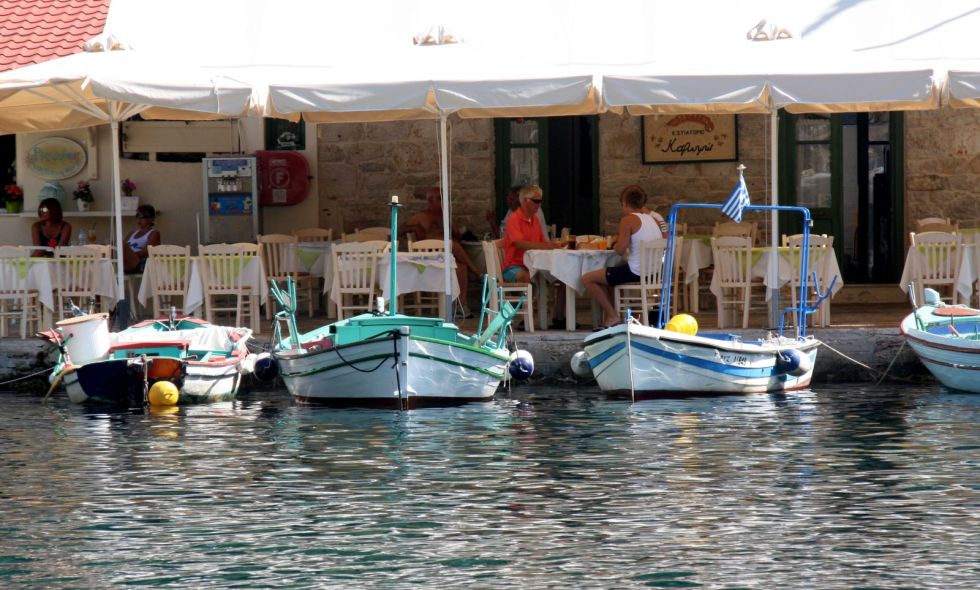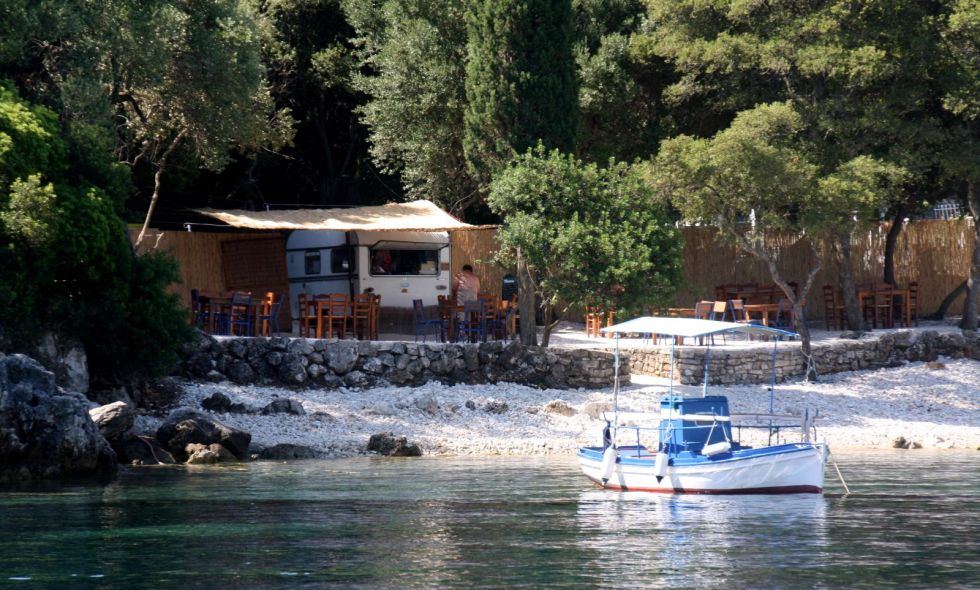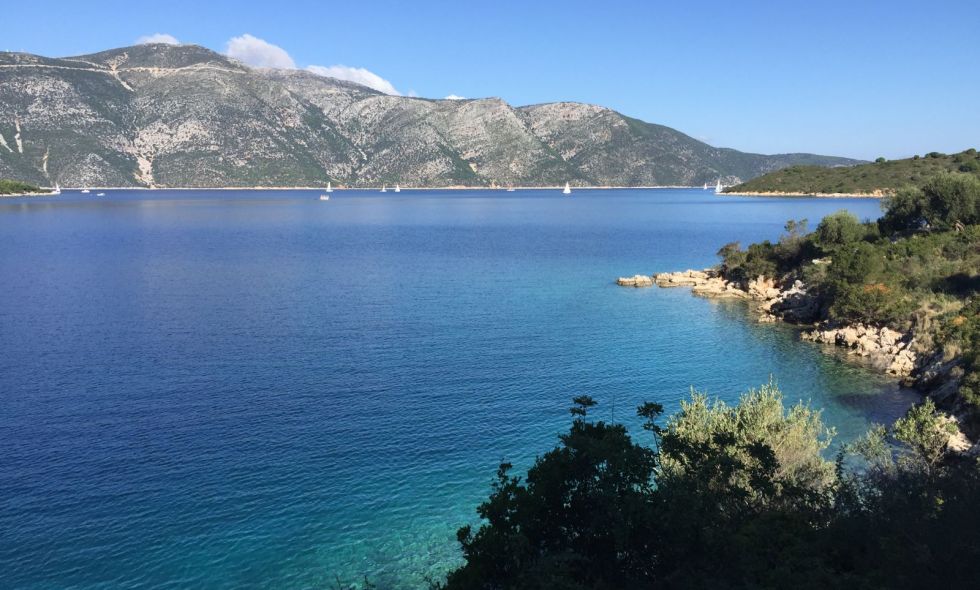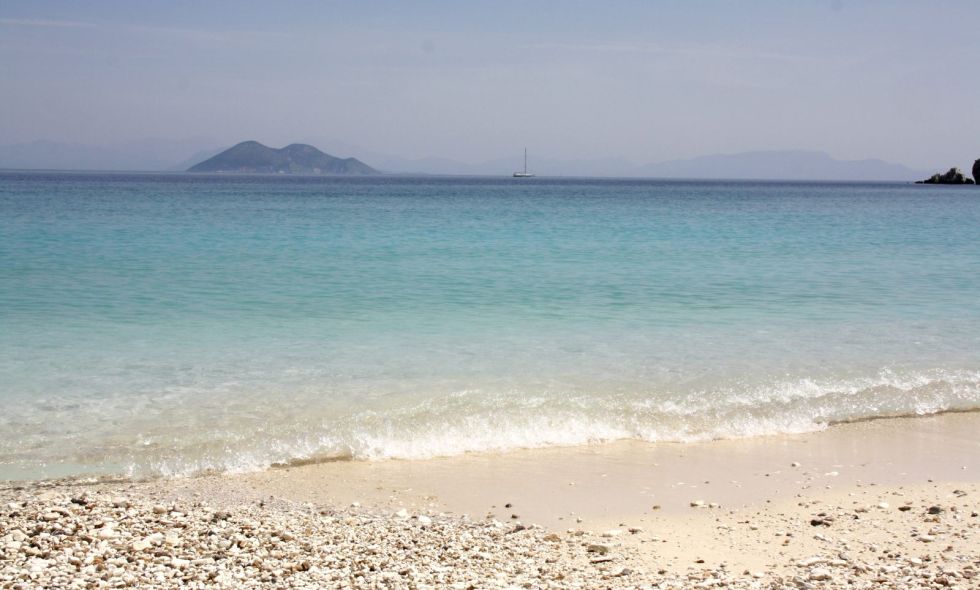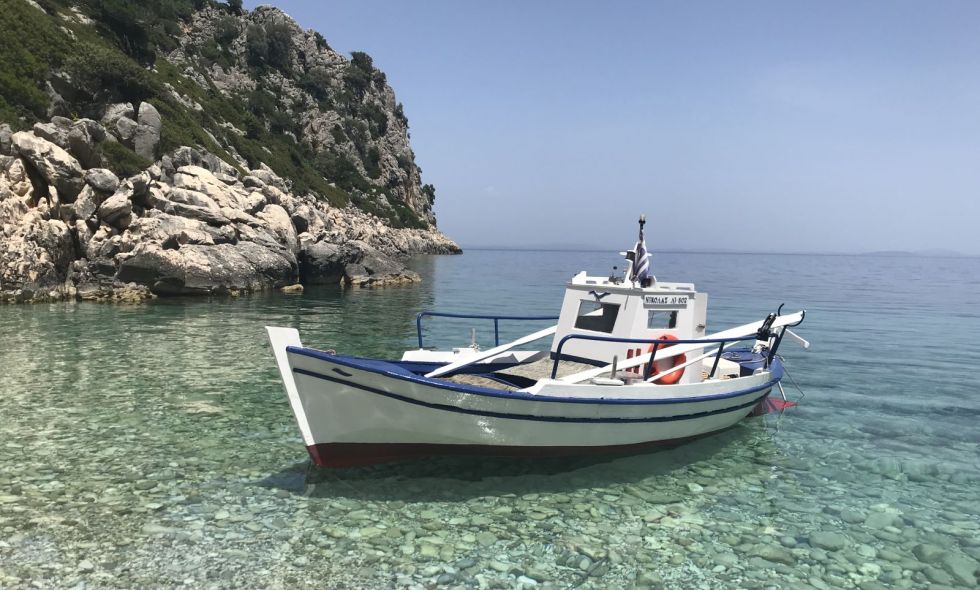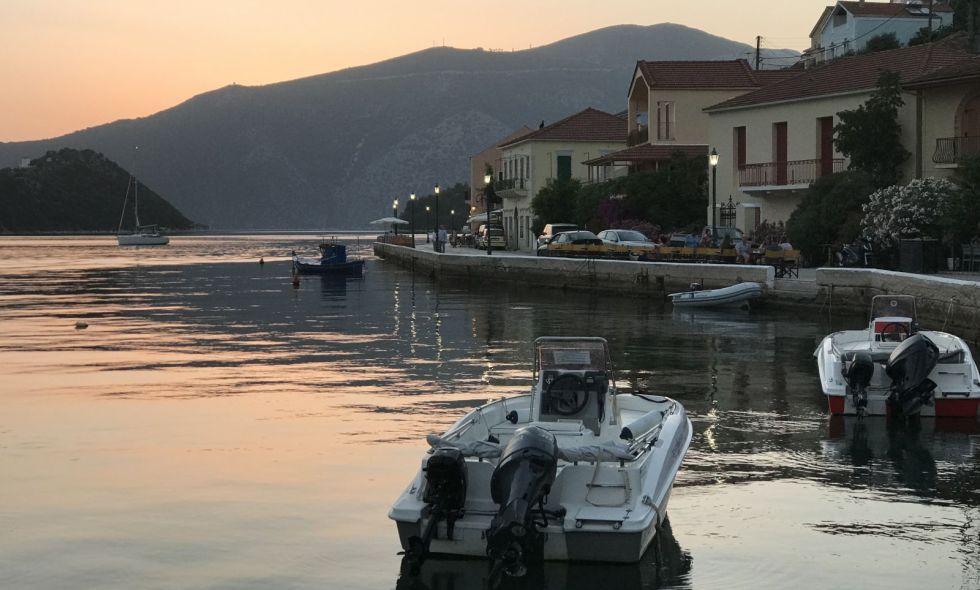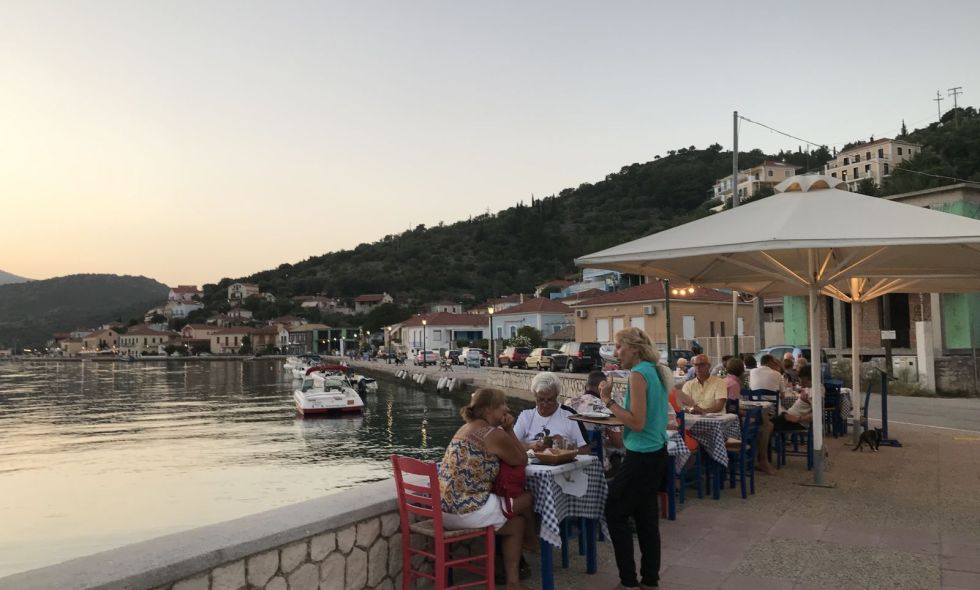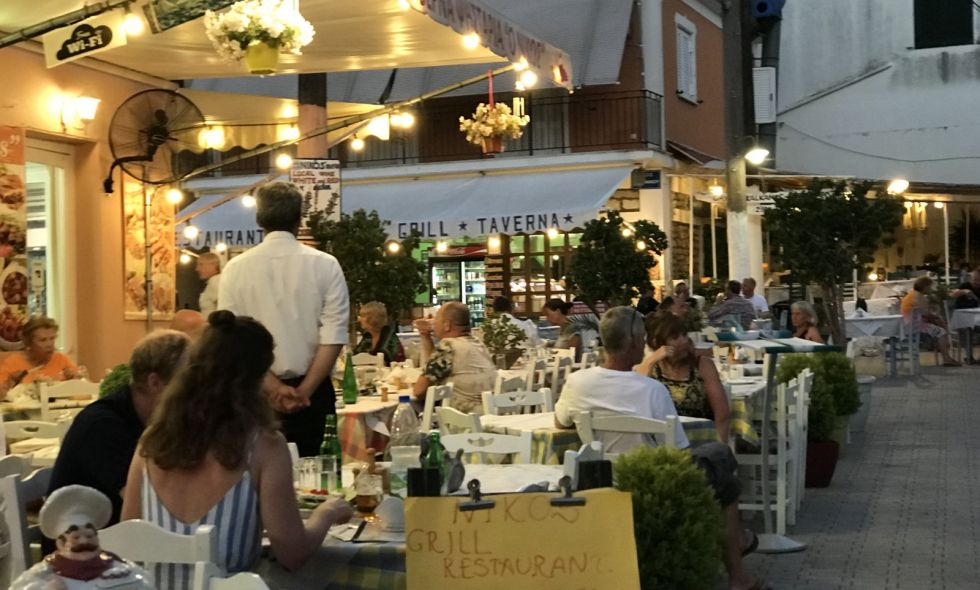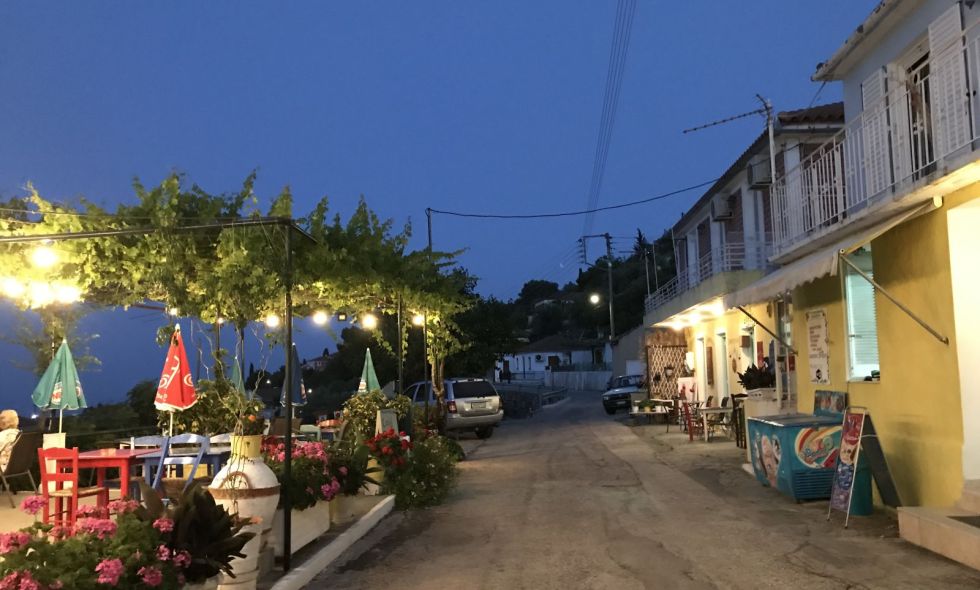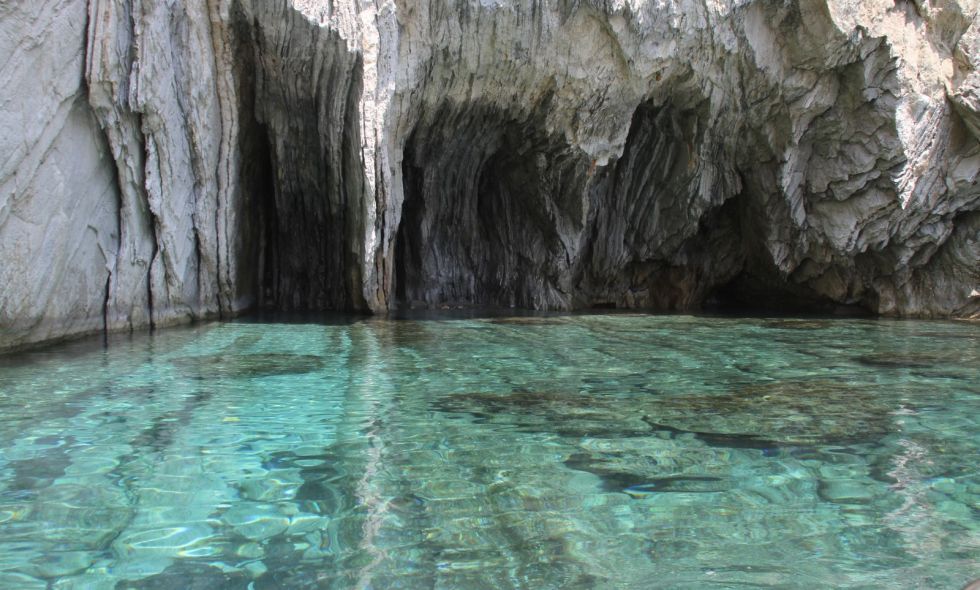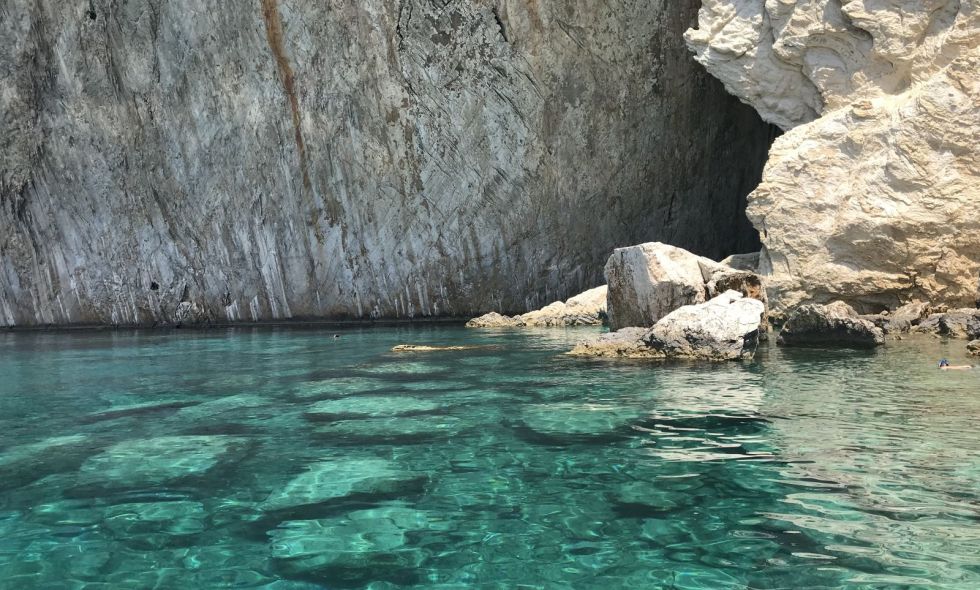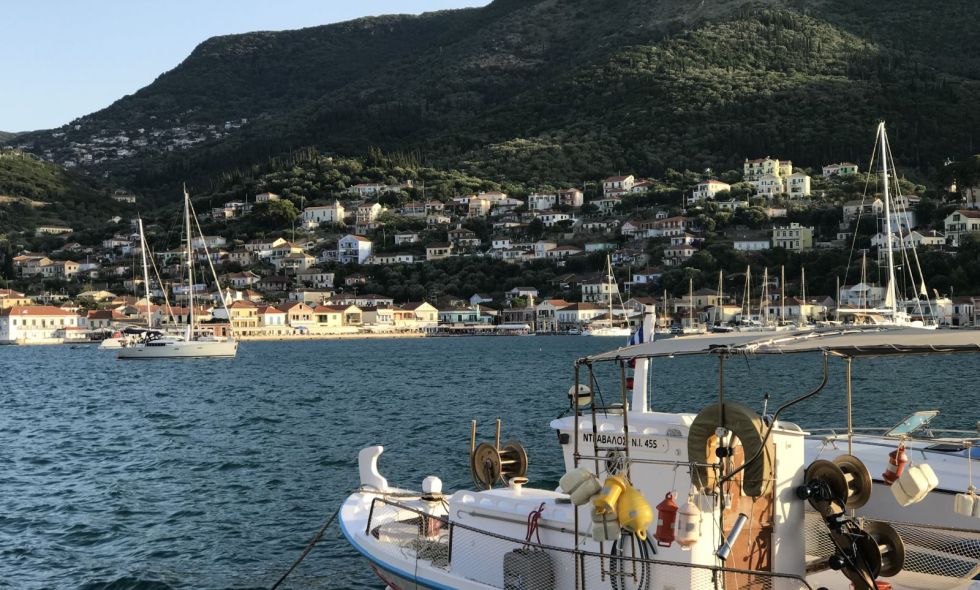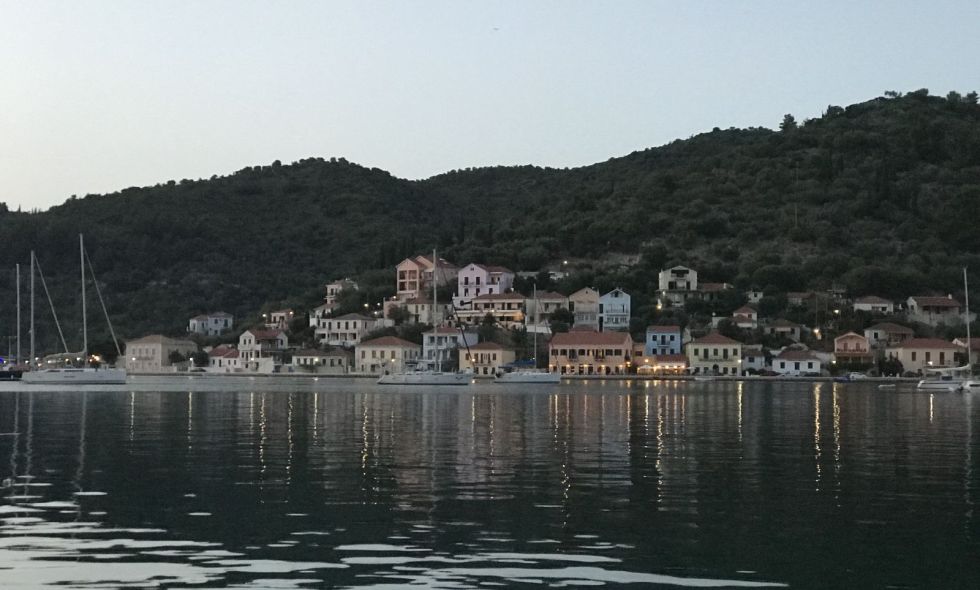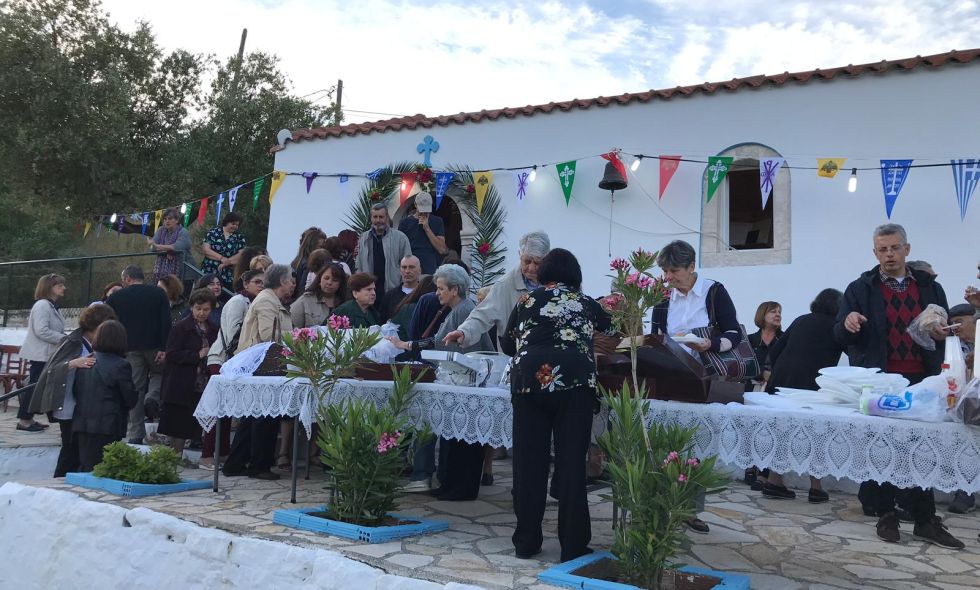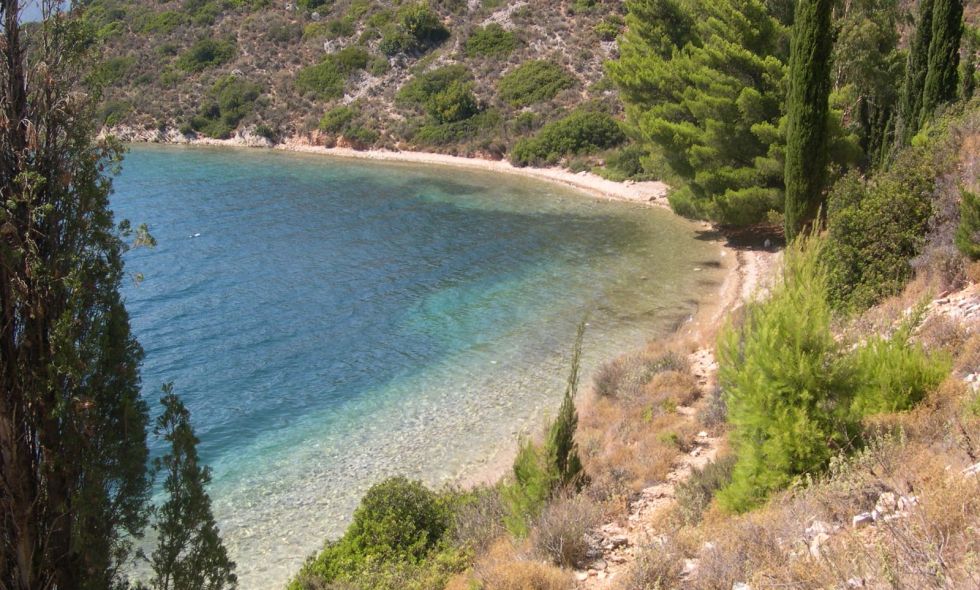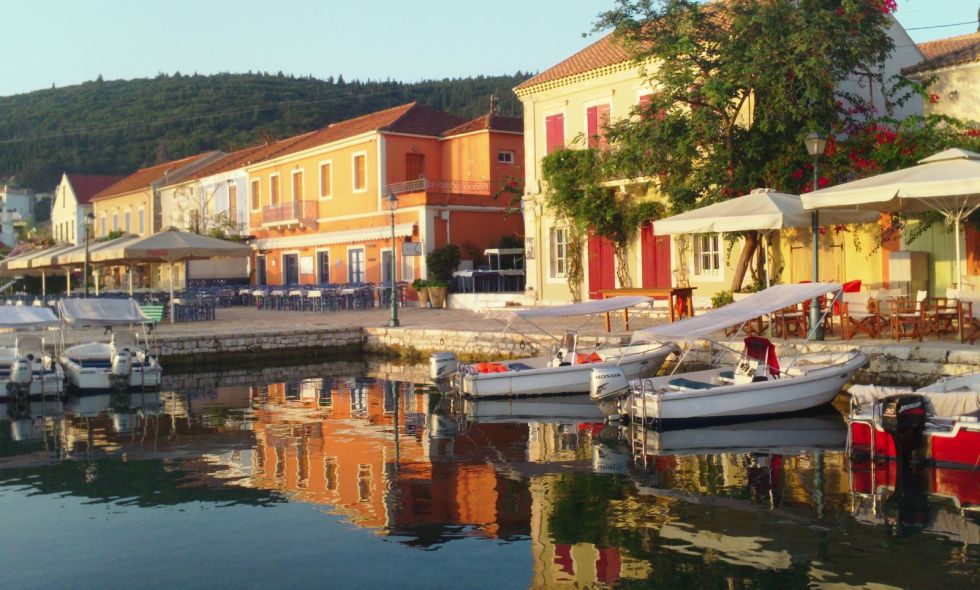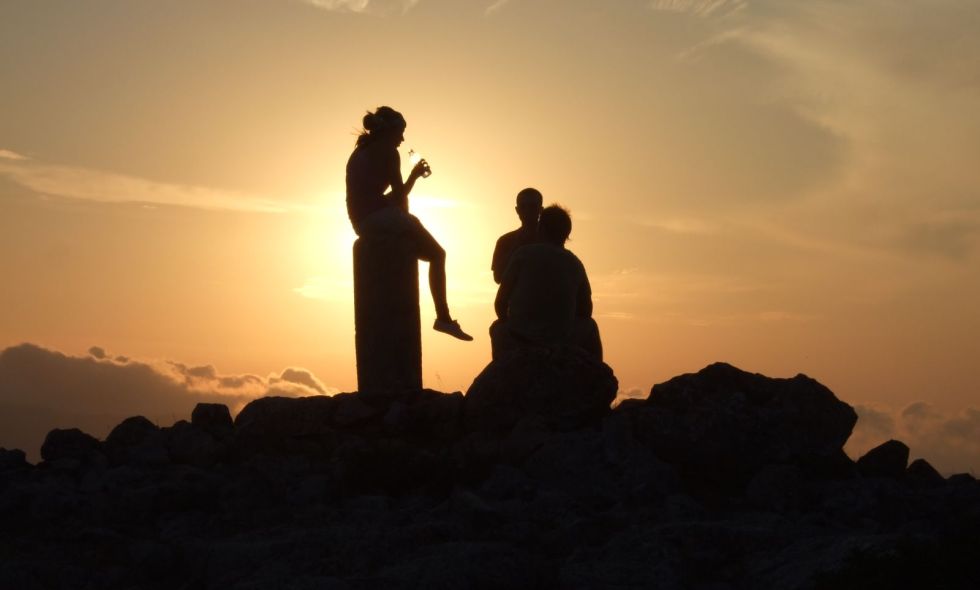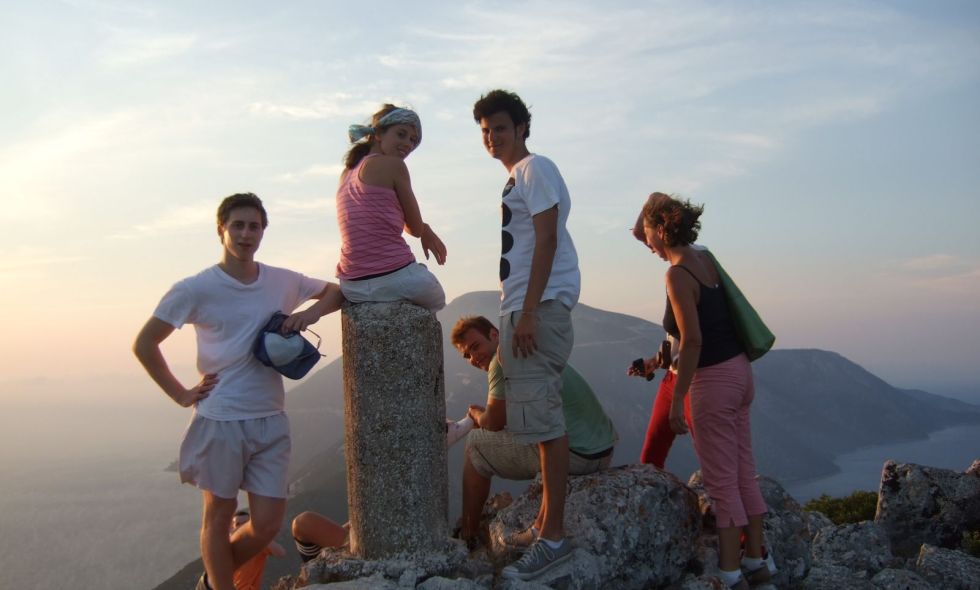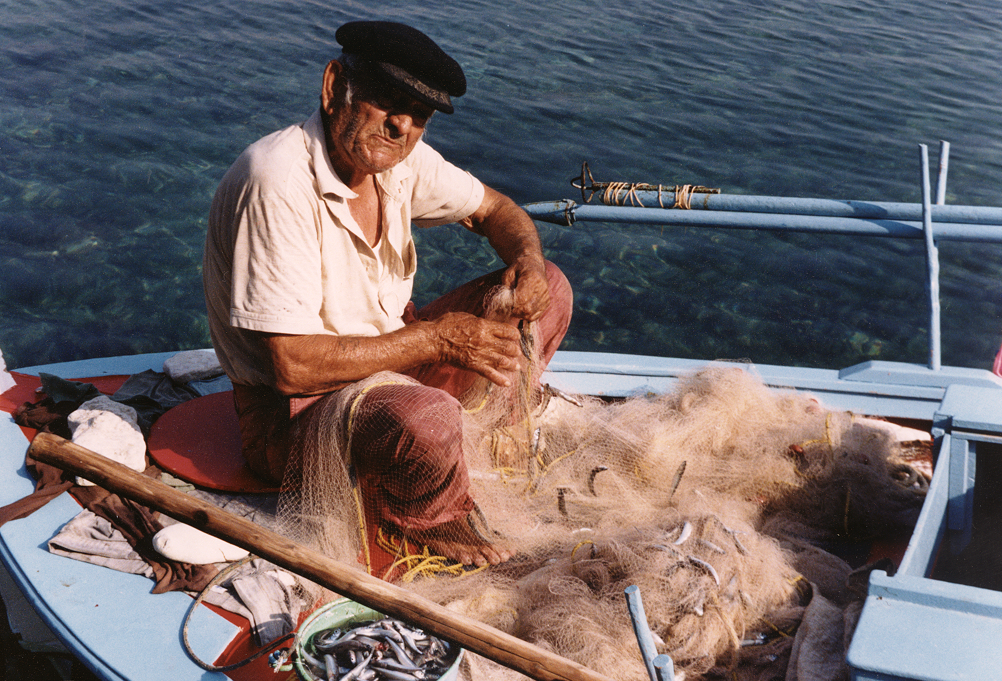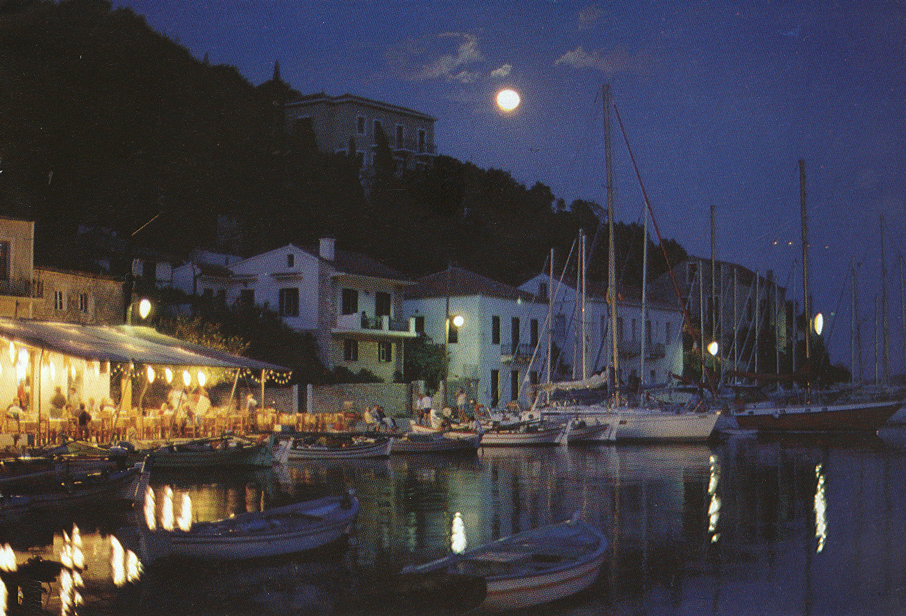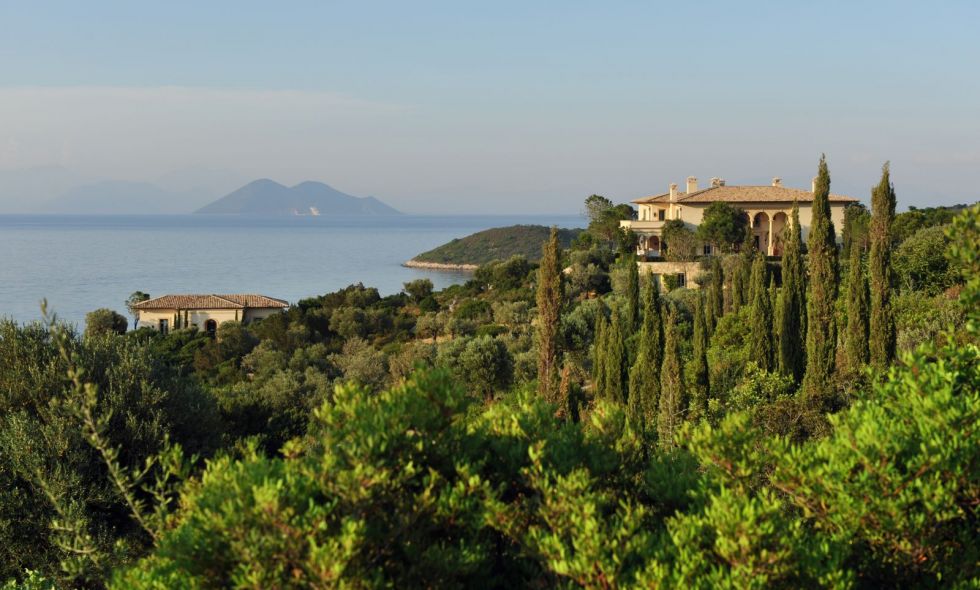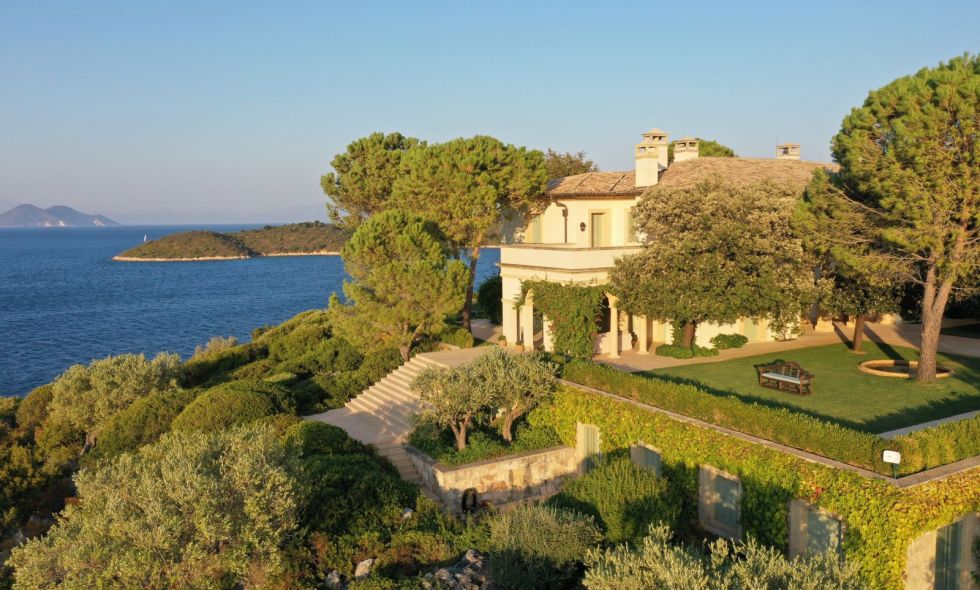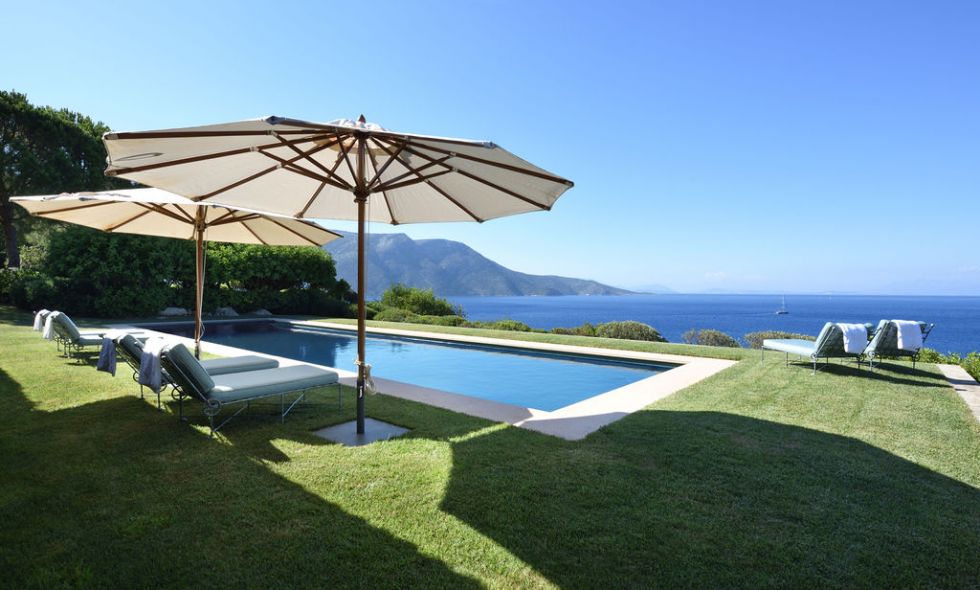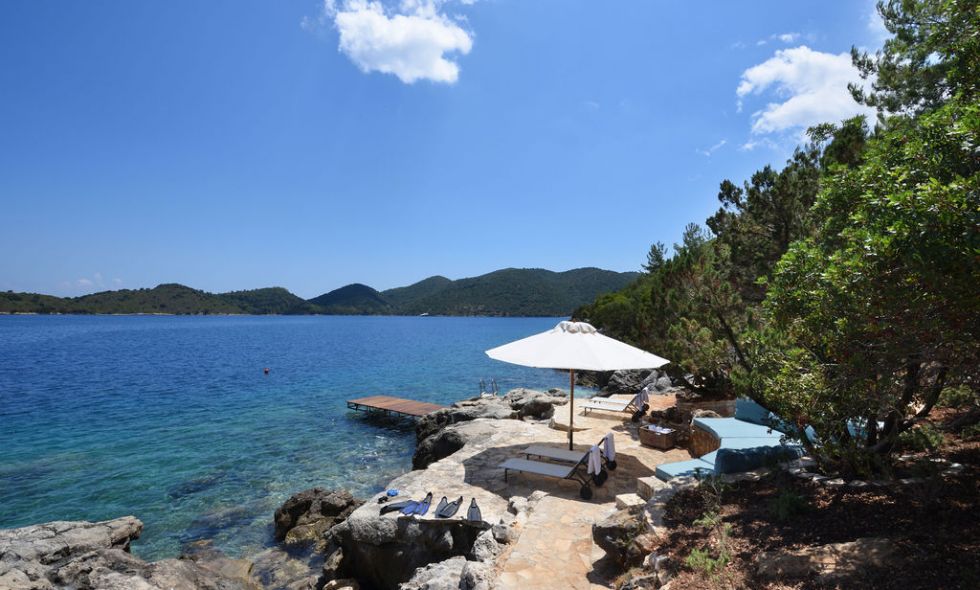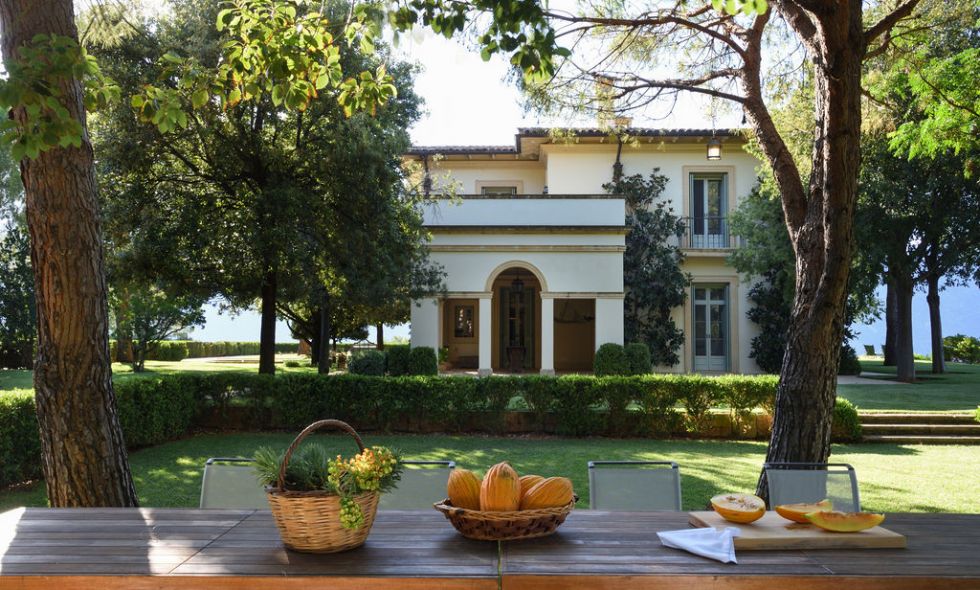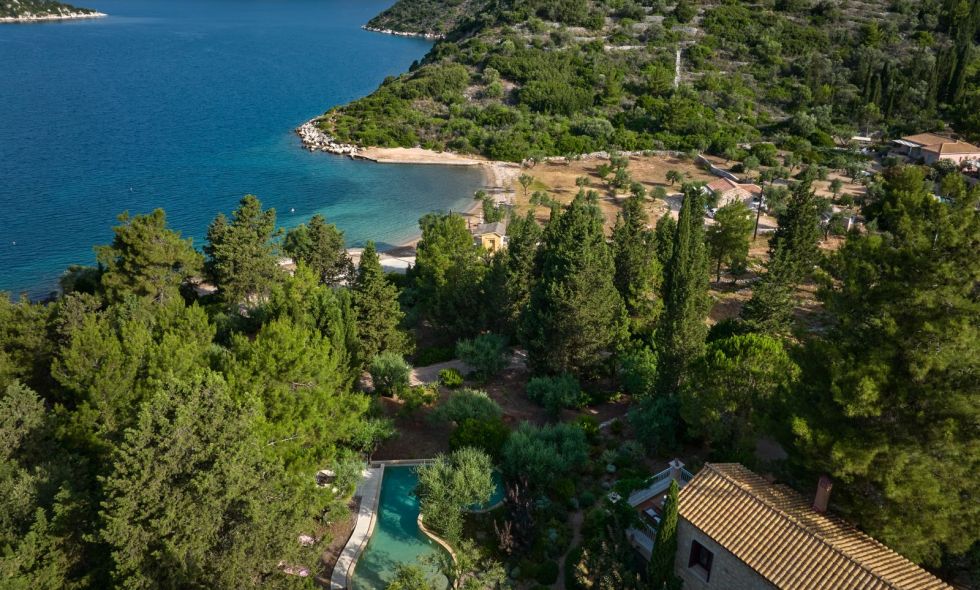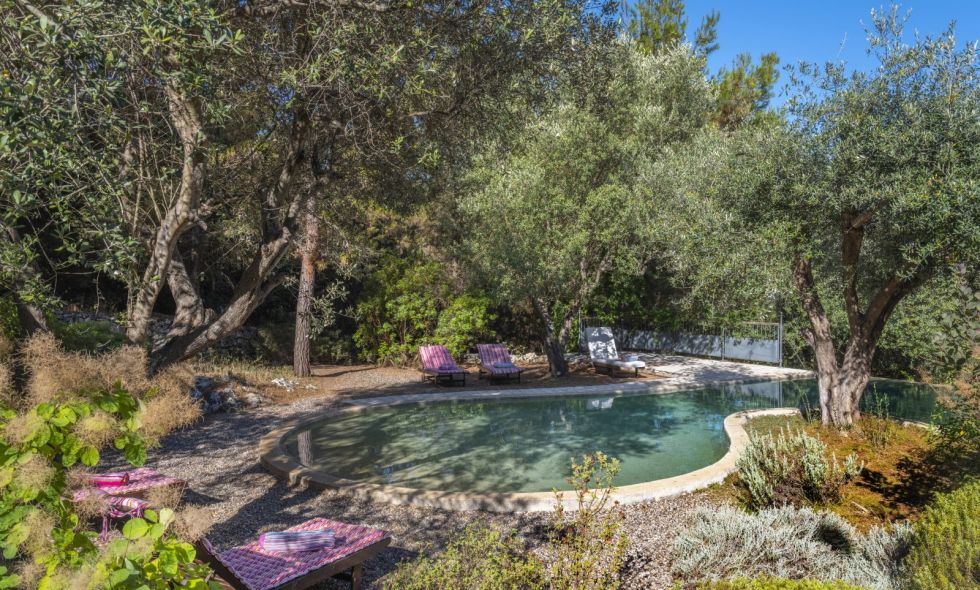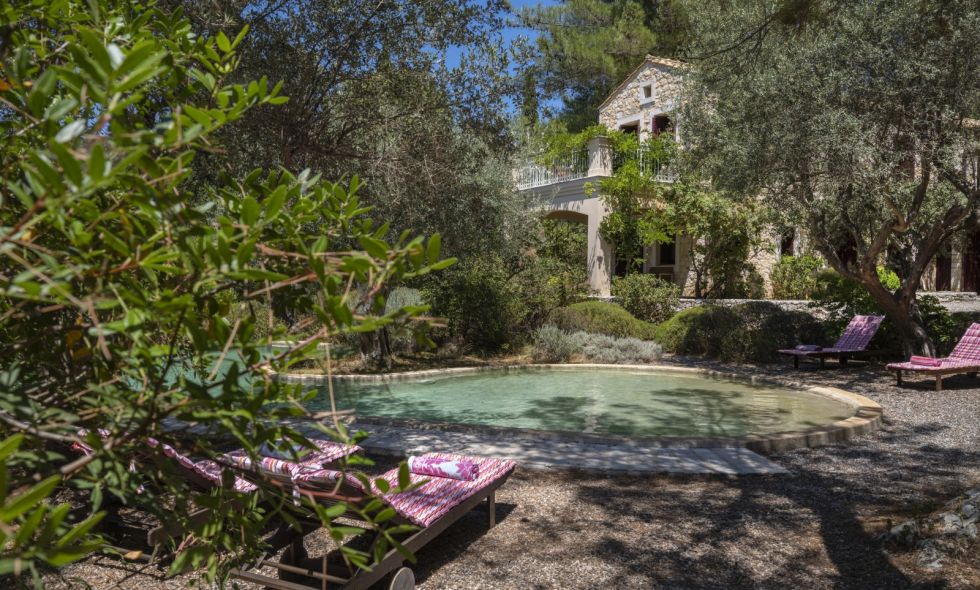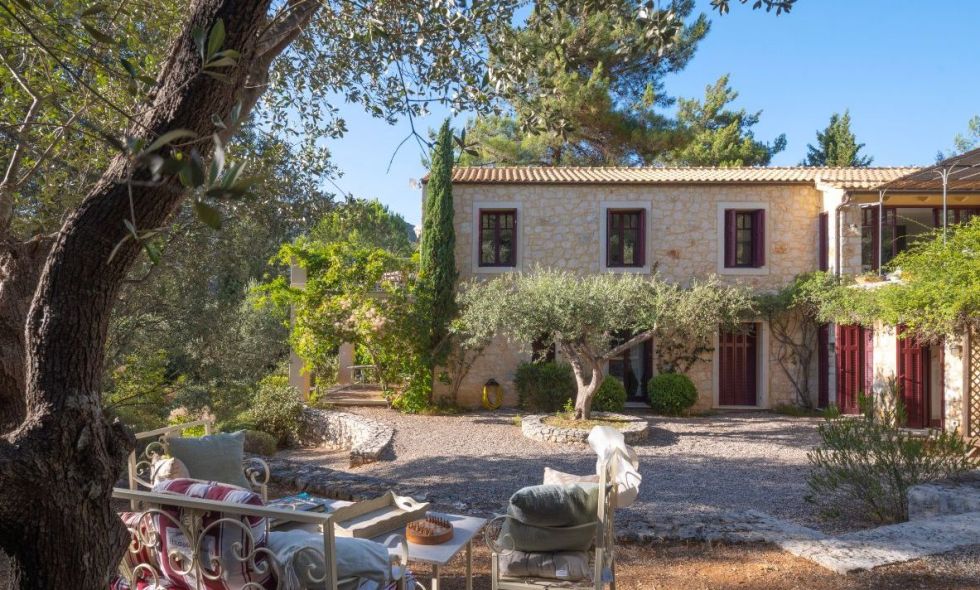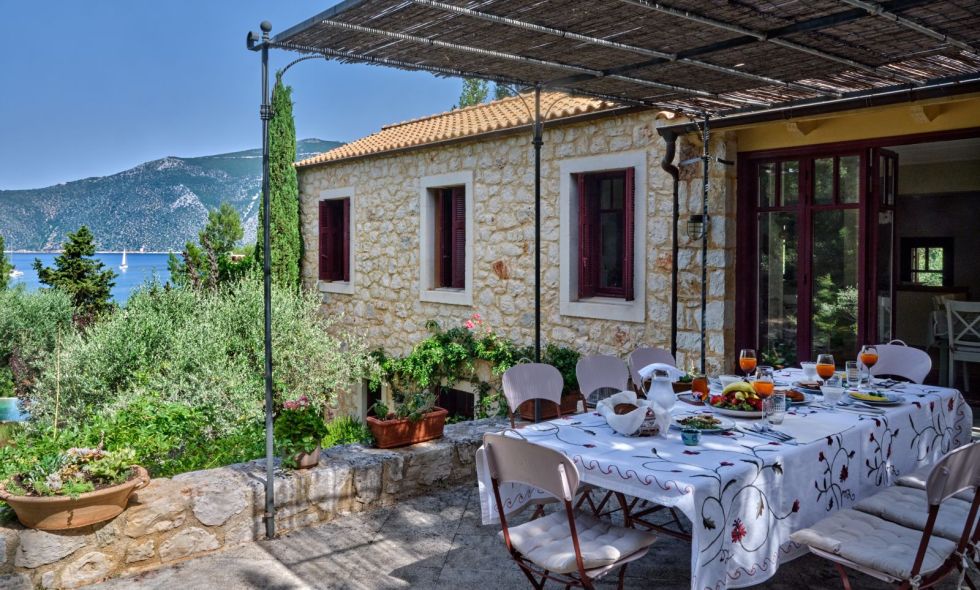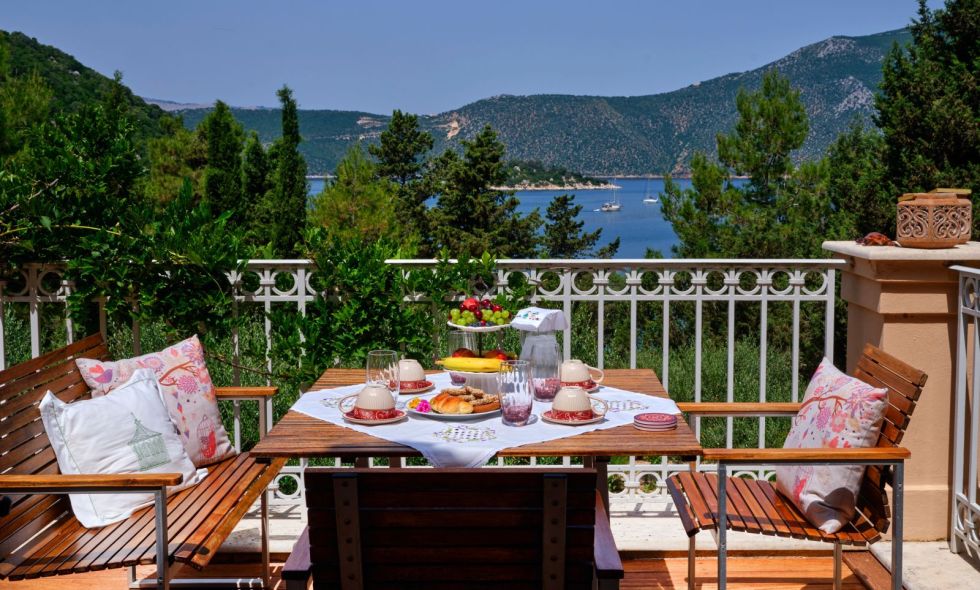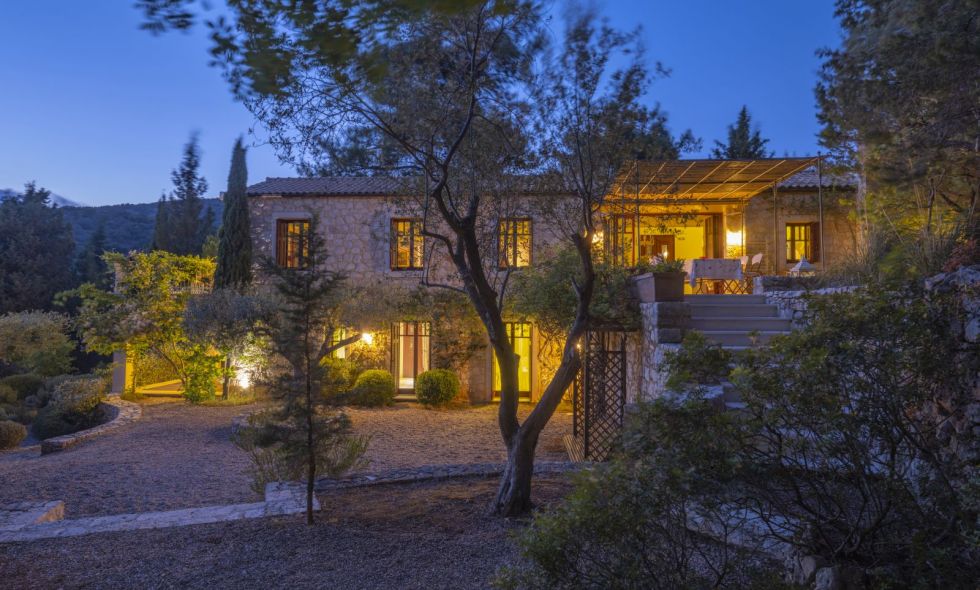Ithaca is more of a metaphor than an island – the yearned-for homeland, the “poor but mine” birthplace, the goal towards which one journeys, the journey itself – Its first poet was of course Homer, writing about the birthplace of Ulysses. In the same vein though, CP Cavafy, the famous turn of the century Greek poet described by E.M Forster as “A small figure in a straw hat, standing at a slight angle to the world,” continued the myth, from the viewpoint of another exile standing in the periphery and yearning for a centre. “Expect not that Ithaca will give you wealth – Ithaca has given you the journey.”
Except that Ithaca gives more than that to today’s travellers- it gives beauty and magic and considerable luxury in its handful of great villas, in a way that nowhere else does.

View Map
Ithaca Portrait
When You Set Out On Your Journey To Ithaca…
Cavafy’s poem is a haunting icon for all our odysseys. Do look it up! Ithacans themselves have been adventurers and wanderers, journeying to other sides of the world to build new lives since the time of Homer’s hero Odysseus.
The island is dramatically beautiful, rugged, relatively undeveloped, green and mountainous with steep blue indented bays and charming little harbours and villages. A wonderful haven for pirates and an idyllic anchorage, Vathy, the capital, curls around a graceful bay with mountains rising behind its buzzing restaurants, bars and life. The excellent little Traditional Museum will surprise you at how Europeanised, cultured and outward-looking homes were all across the island 150 years ago.
Ithaca offers simple pleasures – views, scents, water, nature. It’s a small workaday place, never a land of plenty, but it has a magnetism, a natural grace, an energy-giving power, which draws those in the know who need renewal, uplift and inspiration.
It also draws home those who left as callow young boys, who made their fortunes in the New World, but who wish to live their last years on the relatively unaltered island of their birth. This has been part of Ithaca’s character-motif since the mercantile traders under 16th century Venetian rule, to sea-captains and ship-owners of the 19th century, and the hunger driven diasporas to Australia, Romania and the Black Sea, America, southern Africa and Canada. Chat to older men in the cafes and you’ll find perfect English from retired hoteliers from Johannesburg, doctors from Boston, professors of anthropology from Melbourne, cultivated ship-brokers from London or breezy restaurateurs from Auckland. These are the children of Odysseus. Ithaca surprises you at every turn.
BEST FOR
Calm summer seas, discoveries by boat. The whole coastline is folded into myriad bays hiding perfect bathing coves, picturesque villages, caves and grottoes, little white beaches with powdery round pebbles and emerald green water. Behind them are battalions of cypress spears amidst rolling phalanx of ancient silvery olive trees. Hire a motor scooter and drive one of the most panoramic corniche roads we know.
WORST FOR
Relative inaccessibility (it took Odysseus 10 years to get to Ithaca) but thanks to that, there are no crowds, weekenders or daytrippers. There is a heliport but the nearest airport is on opposite Cephalonia. Patras, from where the ferries to Ithaca leave, is a two-hour drive from Athens but the ferries are changeable – best of all are the water taxis that now ply the channel between Kefalonia and Ithaca, and make it an easy hop across from Kefalonia airport at any time.
Off season the island only functions at a very low level, so in bad weather there is not much on offer.
WOULD SUIT
Those happy in their own company, those wanting to potter about in boats, go for beautiful walks, or read under shady olive trees with just bees, cicadas, goat-bells and the scent of thyme and sage for company. Meet friendly locals, swim, snorkel. Would also suit Homeric students – the sites of Odysseus’ palace and other Homeric spots are there to be visited if you can find them, many are still almost unknown and archaeologists have only just started scratching the surface. Bring sturdy shoes and Robert Fagle’s brilliant translation of the Odyssey and the Iliad, and Tim Severin’s The Ulysses Voyage. Studiously ignore Robert Biddlestone’s misguided attempt to position Cephalonia as the Homeric Ithaca!
WOULD NOT SUIT
Those needing outside stimulation, expecting the fast track on holiday – sleek modernity, sophisticated clubs and bars, great food, chic cafes, designer shops and haute-cuisine.
DON’T MISS
A climb at sunset above Exoghi to the monastery on the summit, to witness the 360-degree view across the shipping-routes and islands of this archipelago. A visit to the 17th century church at Anoghi for its superb frescoes and icons, followed by an omelette and (very strong) local wine from the cafe owner next door. Hire scooters to drive this sensational route, but those with vertigo beware!
A boat trip to Afales Bay – its sands are snow white and its waters lapis-lazuli – it was Charles and Diana’s favourite honeymoon swimming spot. The lovely footpath to Gidaki beach – a long narrow pebble crescent with stunning water. A caique does trips to both these.
Another nice walk is from the mountain village of Anoghi down to Kioni, it takes two hours and you can book a taxi to return up to your car.
On a hot night eat at Vennos’ up in Perahorio and enjoy the spectacular view. For typical local dishes and spit-roasted meat, try Niko’s, Zoi’s or Kalkani’s in Vathi.
Ithaca Mare has the most romantic setting by the water under the shade of giant eucalyptus trees. Mills on the Vathi waterfront is a great place for good food, Stavros has some good tavernas in the Plateia – try Fantouros for its suckling pig, and the waterfront tavernas in Kioni and Frikes are always a delight.
To Gefira in Platithreias has no view but this small non-Greek run retaurant offers proper drinks and some quite fine food as a change from the usual Greek fare.
Hani’s was the old muleteers khan or stopover at the halfway point up the mountain from Vathi to the monastery of Kathara – Lord Byron stopped there – the food now matches the sublime views and it is the perfect place for a sundowner.
Dinner on the beach in Filiatro watching the the mountains of the mainland go pink and orange in the sunset, is a particulr joy – this is the closest Ithaca gets to an Ibiza vibe.
See our blogs for more information!
ACTIVITIES
Small boat hire from Vathy, Polis, Frikes and Kioni. Water sports at Filiatro, water-skiing, wind surfing, spear fishing, scuba-diving (excellent instruction from Fiscardo). Underwater marine life adventures with a Fiscardo Scot expert from aboard his traditional caique (how do octopus make babies? Kids love this.) Guided walks along beautiful paths (Anoghi down to Kioni is one) www.ithaca.com. Art classes, Pilates, (pilates4life@yahoo.com), clubs and bars in Vathy, Kioni and Frikes. The archeological museum in Vathi, and the very sweet folklore museum in Vathi – a 19th century inflatable life jacket is a prize exhibit.
HIGH SEASON
Mega-yachts and sailing dinghies can barely find a mooring in July and August – most anchor out in the bay and dinghy ashore, as the calm seas attract the international yachting scene. But you can still find coves to yourselves even now. The summer Saint’s Day Festivals to which tourists are welcomed – genuine island parties, with the young girls bobbing and bouncing to the kalamatianos circle dance, and the Zorba dances being performed by the men, both young and ancient as the night ends and the hard-core remains.
LOW SEASON
Walking the beautiful mountain paths – a bird watchers’ and botanists’ paradise. Eagles circle in thermals, seagulls teach their young how to fly, and shags stand sentinel on a rock. Gentle walks to archaeological sites (Dr Catherine Morgan, director of the British School at Athens is currently digging in North Ithaca, while Americans look at Cyclopean Alalkomenai where you can see three seas, as Homer describes, the probable site of Odysseus’ palace.) There is a charming tiny museum in Stavros open in the mornings with the few Homeric finds that were not taken to Athens. A South African Greek lady guides you through the exhibits. Things close down quite quickly after August, and by mid September, the island is only half functioning.
Ithaca gave you the wondrous journey (C.P. Cavafy).
We do not show villa details on our site to protect the exclusivity of our owners’ properties. We offer a unique personal service to locate the perfect villa or yacht for you – to see villa details and get our expert guidance and insight please get in touch.
Our Villas in Ithaca
Read about our villasThere are only a few great villas on this island where so little has been built, which means that one has to book fast and ahead of time. We have a charming village house above a beach, two major beach estates. Ithaca has strict building regulations and enforces the idiom of traditional Ionian (pastel and Italianate with tiled roofs). It’s all about sea life though, so particularly prized are villas with their own skippered boats.

